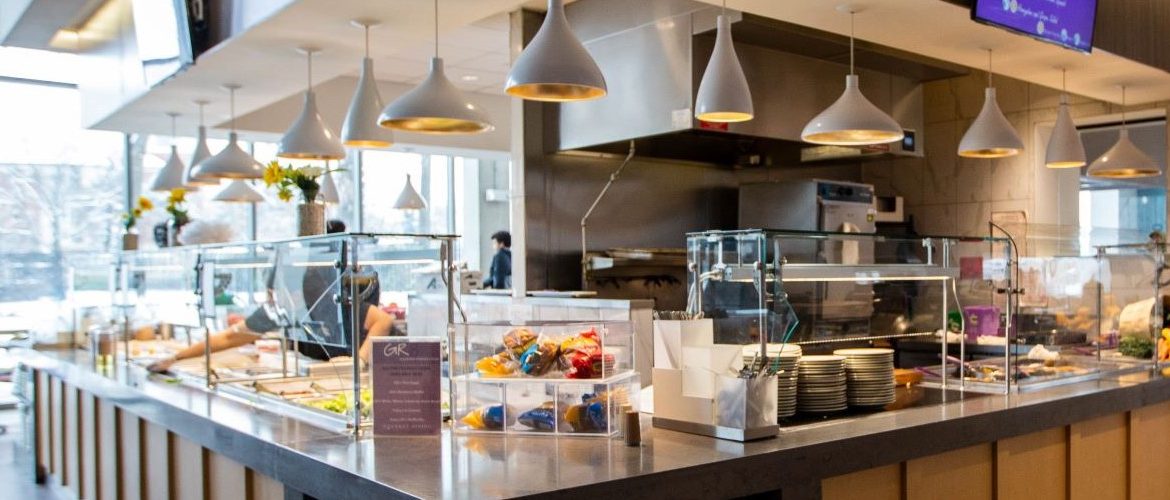Each explained in two simple sentences to help you envision your future If you’re a working registered nurse (RN) considering the next step in your nursing career, completing one of the many RN to BSN online programs can dramatically expand your professional opportunities. While an associate degree gets you in the door, a Bachelor of […]
Author: Adeline McDonald
A Guide: Top Questions About BSN Programs from RNs
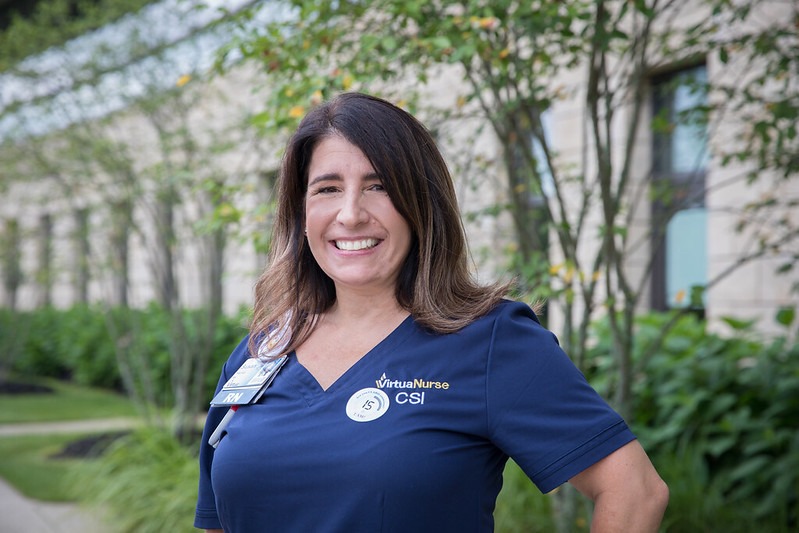
As a practicing registered nurse (RN), you’ve likely considered advancing your education—and a Bachelor of Science in Nursing (BSN) program is one of the most popular pathways. But with many options available, you probably have questions such as: Drawing on expert sources – RNs themselves – here are the top questions, and answers, RNs ask […]
Why Earning Your BSN Online Is a Game-Changer for Registered Nurses
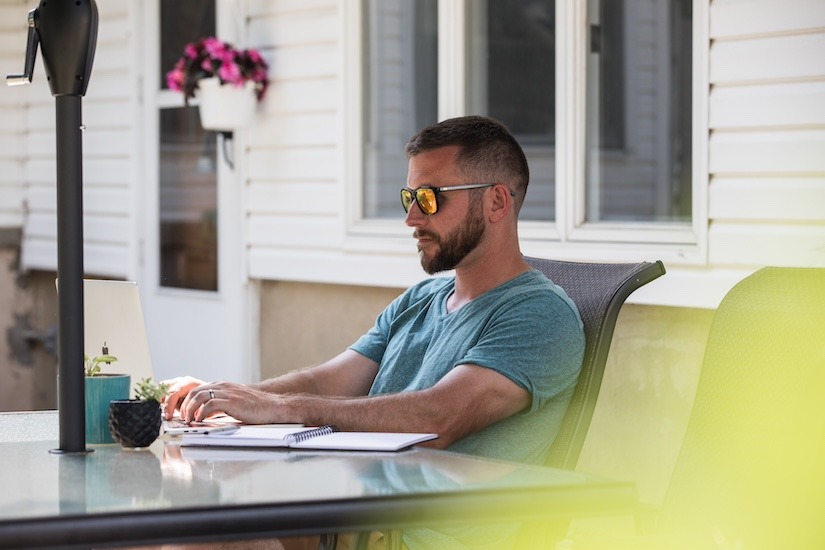
In today’s dynamic healthcare environment, nurses are at the front lines of complex, evolving care. As demands increase, so does the need for advanced preparation—and that’s where a bachelor of science in nursing (BSN) degree comes in. If you’re wondering whether a BSN online program is worth the investment, research and career outcomes point to […]
What Is a Chief Nursing Officer (CNO) in Healthcare—and How Do You Become One?
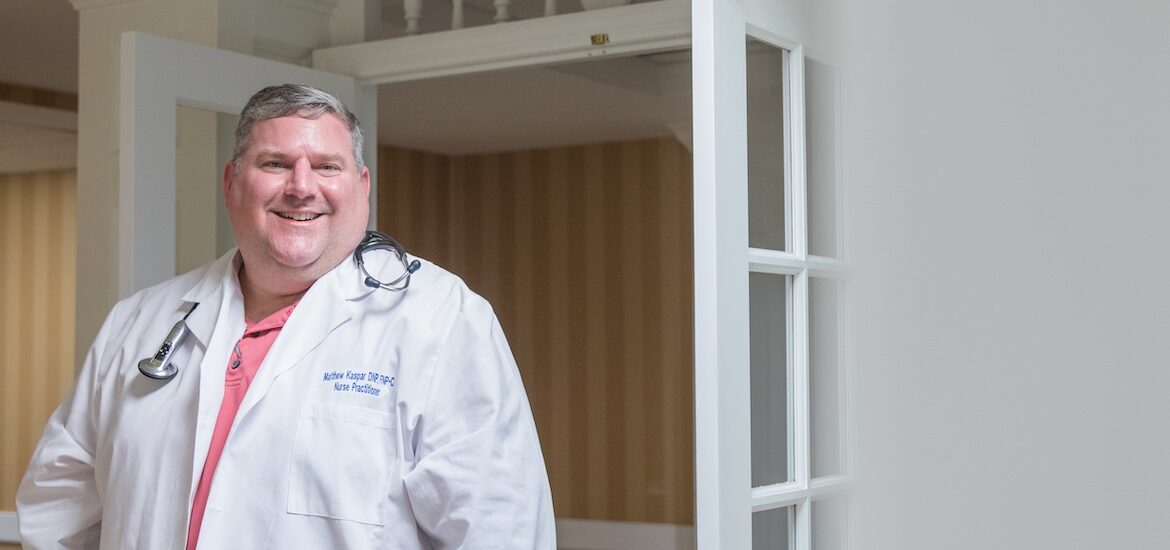
In an era of rapid transformation across the healthcare landscape, the position of Chief Nursing Officer (CNO) has never been more pivotal. As health systems become increasingly complex, the CNO plays a strategic leadership role of balancing clinical excellence with executive decision-making to improve patient outcomes and support nursing staff. If you’re asking, “what is […]
How to Become a Nurse Educator with an Online MSN Degree
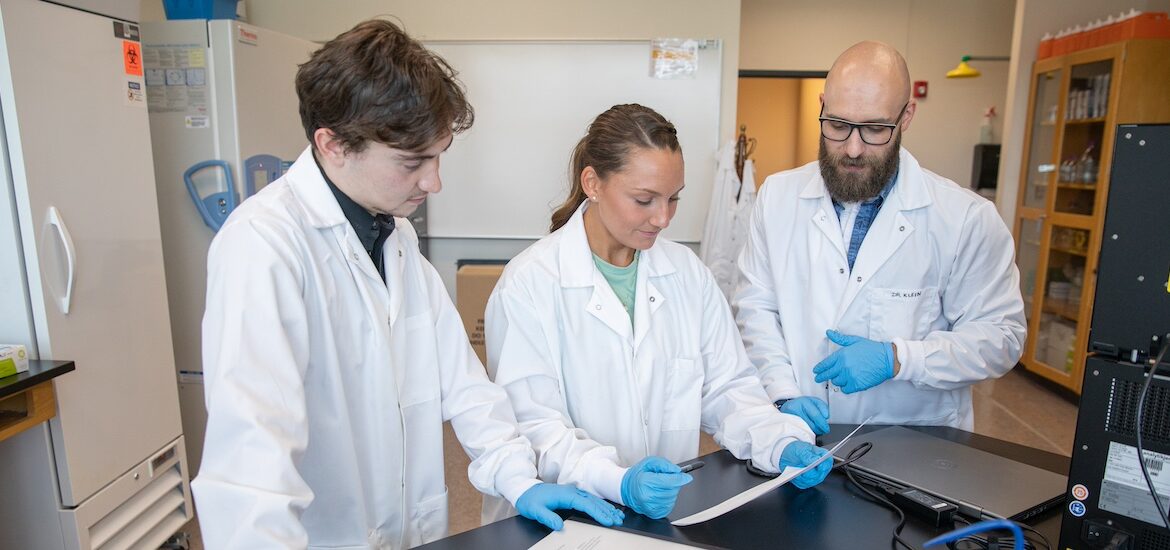
Nursing is more than a career—it’s a calling. And for those who feel drawn to teach the next generation of nurses, becoming a nurse educator opens a door to long-term impact in clinical settings, classrooms and beyond. If you’re exploring how to become a nurse educator, you’re likely already thinking about how to blend your […]
12 Diverse Career Paths With a Master’s in Cybersecurity
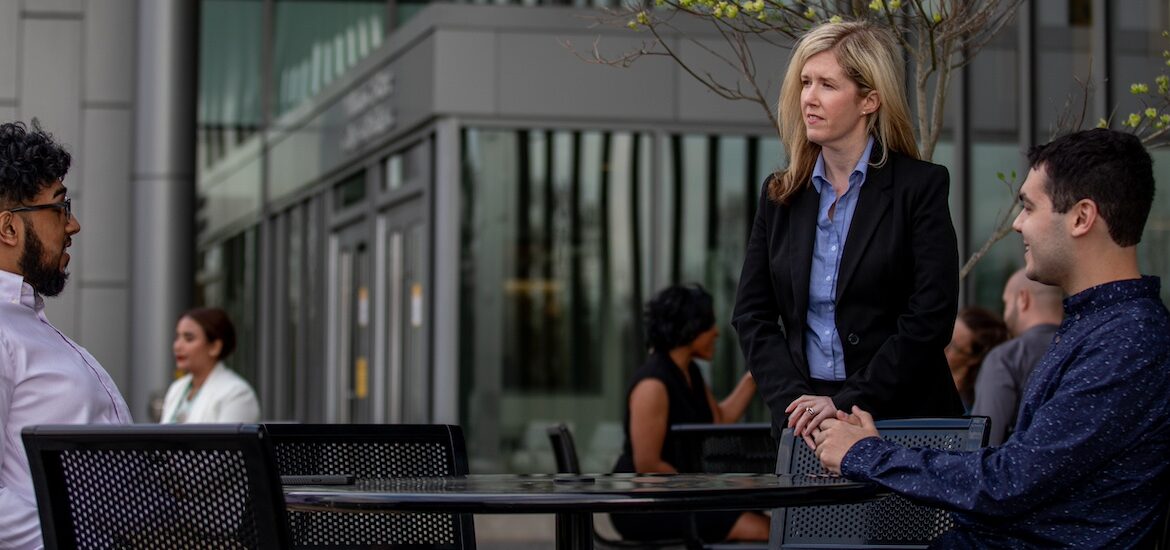
Nearly every industry needs cybersecurity professionals, offering incredible variety in where—and how—you can work. From government agencies and financial institutions to healthcare systems, tech startups and global corporations, the demand for skilled experts with a cybersecurity degree is widespread and growing. You might find yourself working in a high-security operations center, consulting remotely for clients […]
6 Simple Tips For International Students To Help You Thrive
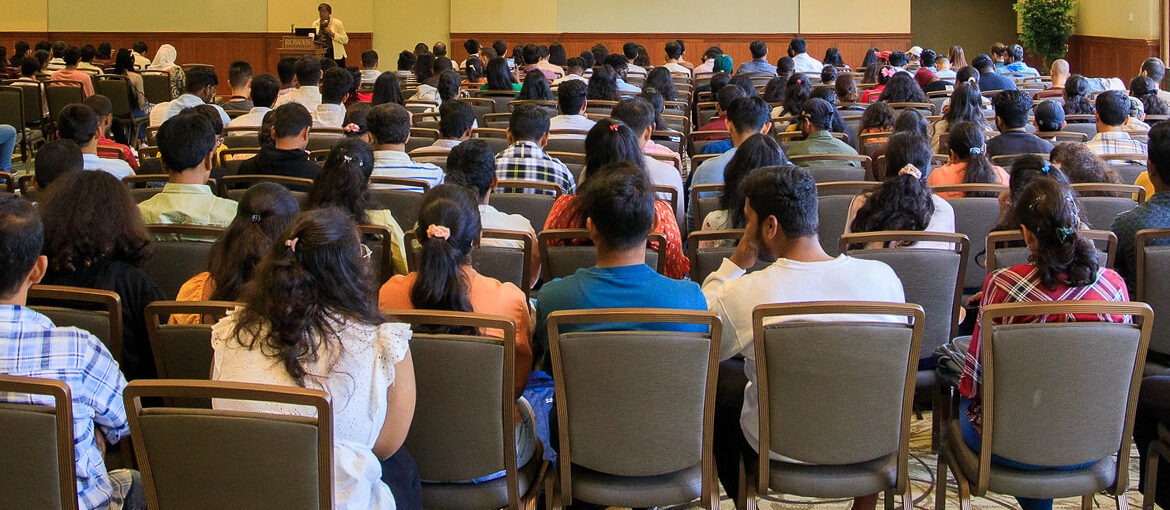
Written by: Ignacio Domingo, first-year mechanical engineering major from Spain Starting school in a new country can be exciting and a little scary. As you begin your studies at Rowan University, here are some simple tips to help you adjust and enjoy your time here: 1. Keep Yourself Busy Besides your classes, try to stay […]
Invest in Your Health: A Grad Student’s Blueprint to Thrive
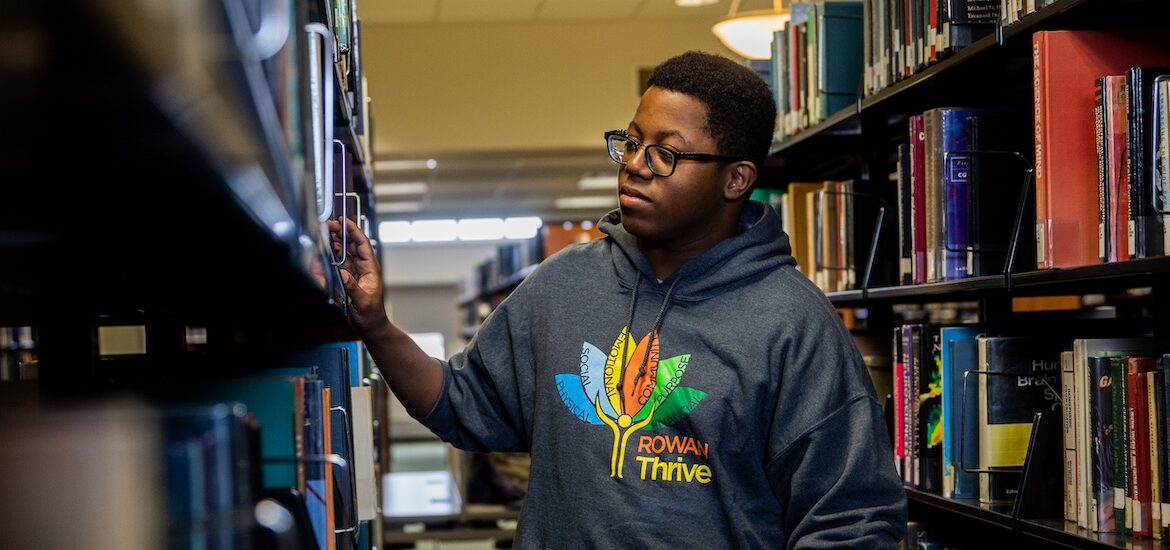
Part of a series with Rowan University’s Wellness Center, this collaboration aims to educate students about personal well-being options. For further updates, follow @rowanuwellness on social. Written by Nardin Salib, Wellness Center intern and graduate student pursuing a master’s in higher education Whether you are a traditional graduate student entering your program directly after undergrad, […]
12 Careers You Can Pursue with a Master’s in Special Education
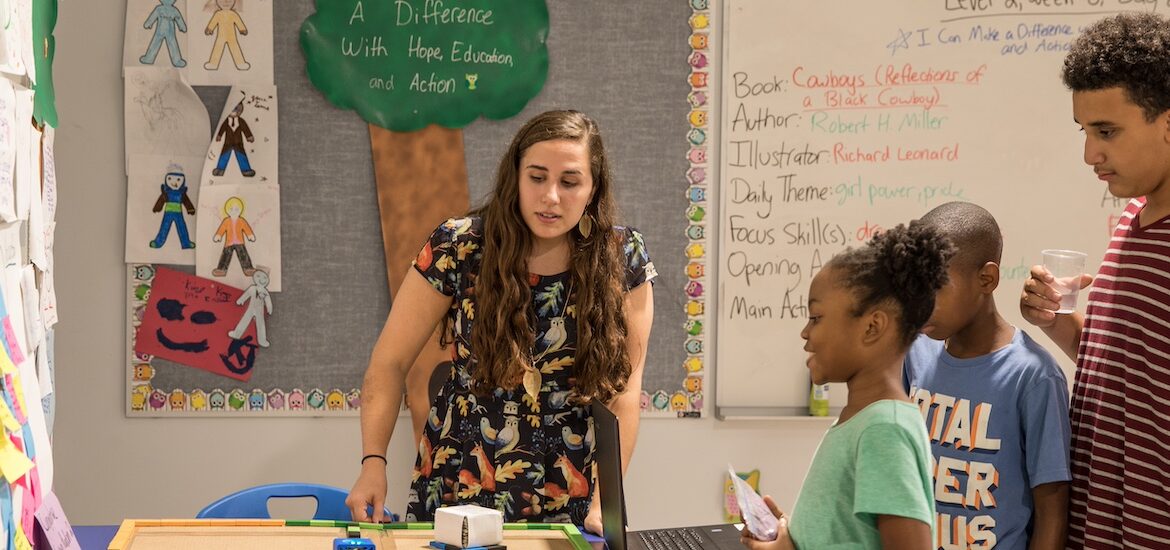
What Can You Do with a Master’s in Special Education? A master’s in special education is a degree that can open more doors than you might expect—both inside and outside the classroom. Whether you’re already teaching or exploring a new career, this degree prepares you for leadership, advocacy, innovation, and hands-on support for students of […]
Build Inclusivity with an Online Special Education Degree
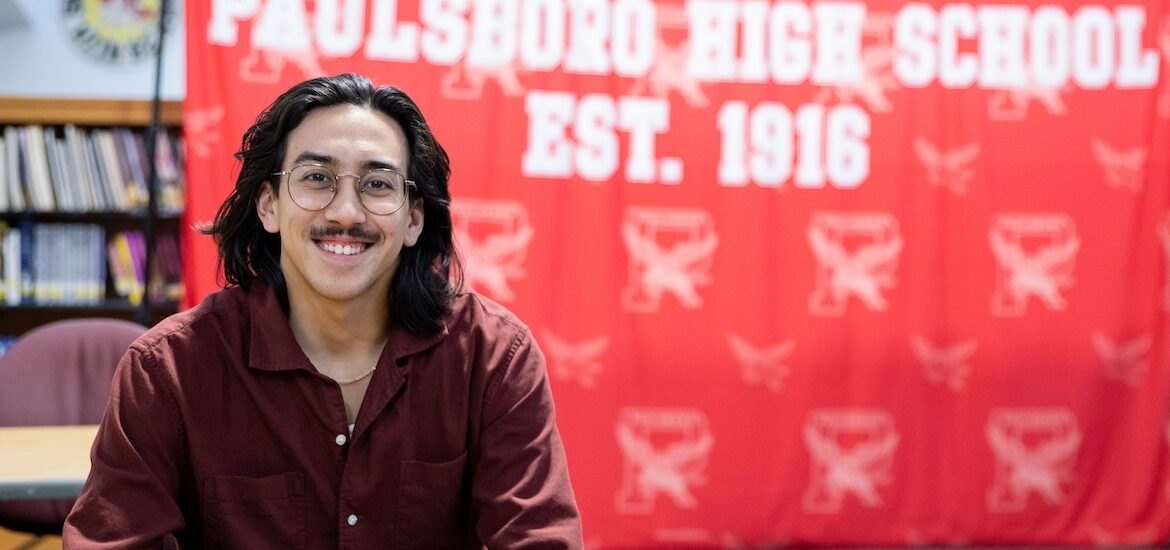
Shape Classrooms & Your Future Through Earning a Master’s in Special Education If you’ve ever watched a child grasp a skill they’ve worked so hard to achieve—and felt your heart swell—you already understand the power of special education. It’s more than a job. It’s a calling. Special educators are the unsung heroes of our schools. […]
Helpful Ways to Cope After Seasonal Depression
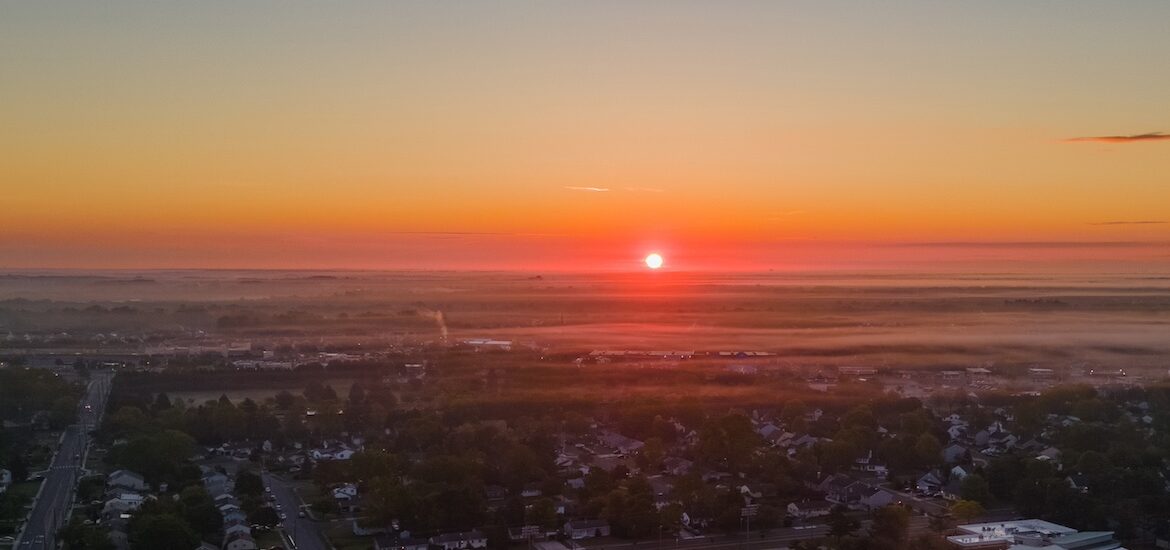
Part of a series with Rowan University’s Wellness Center, this collaboration aims to educate students about personal well-being options. For further updates, follow @rowanuwellness on social. Written by Kaitlyn Jennings, graduate student pursuing a master’s in higher education Seasonal Depression is a type of depression that happens during certain seasons of the year, mostly in the […]
Simplifying Mental Health: Making Gratitude Part of Daily Routine
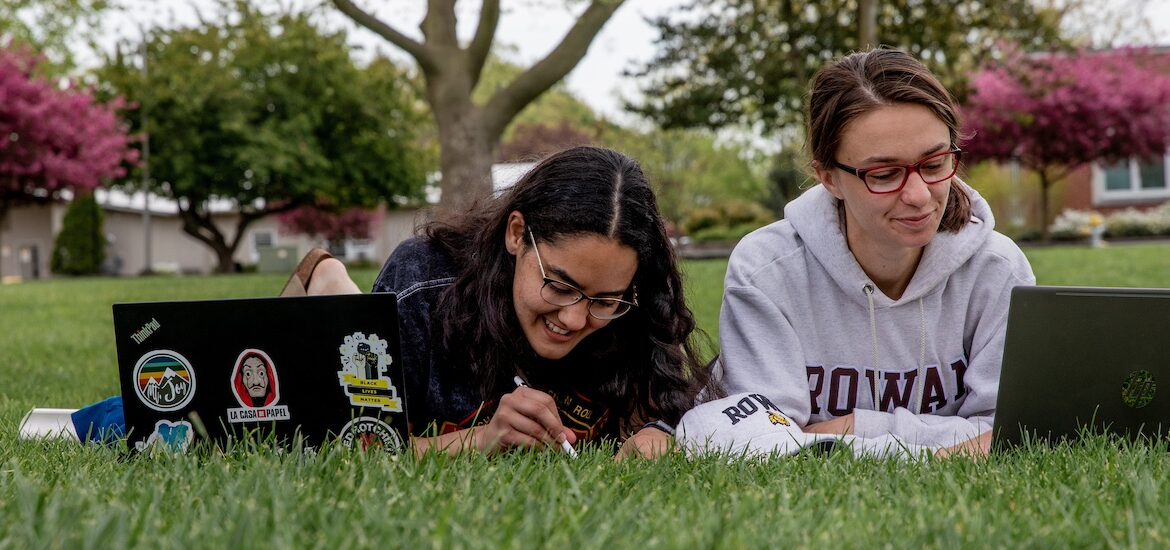
Part of a series with Rowan University’s Wellness Center, this collaboration aims to educate students about personal well-being options. For further updates, follow @rowanuwellness on social. Written by Wellness Center intern Nadia Elbanna, sociology major Mental health has become a major topic of conversation in recent years, which has been largely beneficial. However, it can also […]
What is Chemical Engineering About?
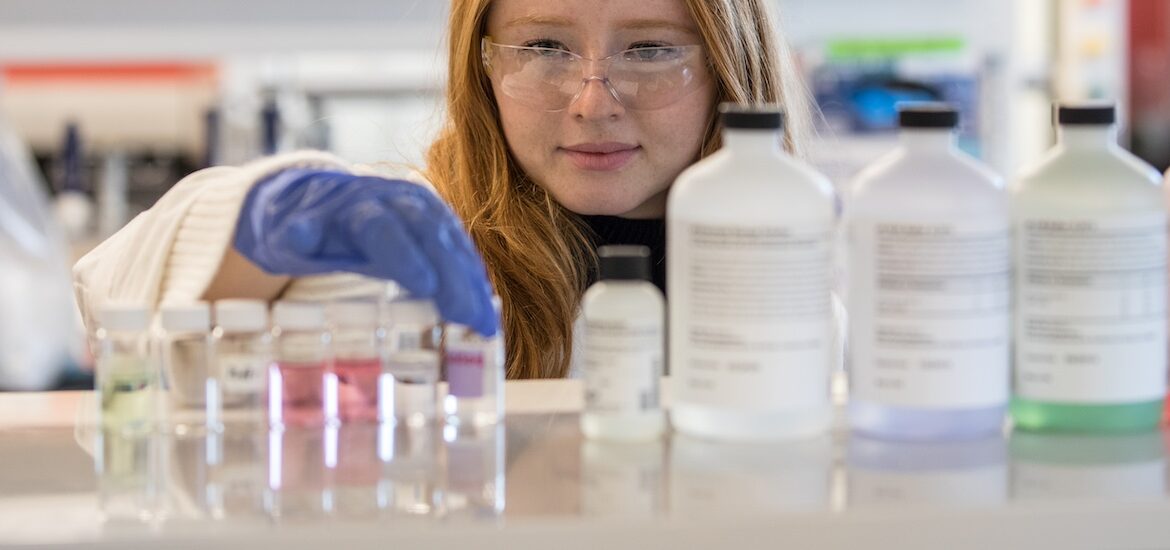
A Practical & Informative Guide to Explain What Chemical Engineers Do Ever wonder how everyday materials—like the shampoo in your shower or the fuel in your car—get made? Chemical engineering is the science behind it all. From developing clean energy to improving food production, chemical engineers work on processes that make life more efficient, safe […]
Neurodiversity in College: Accessibility Services Director Provides Guidance
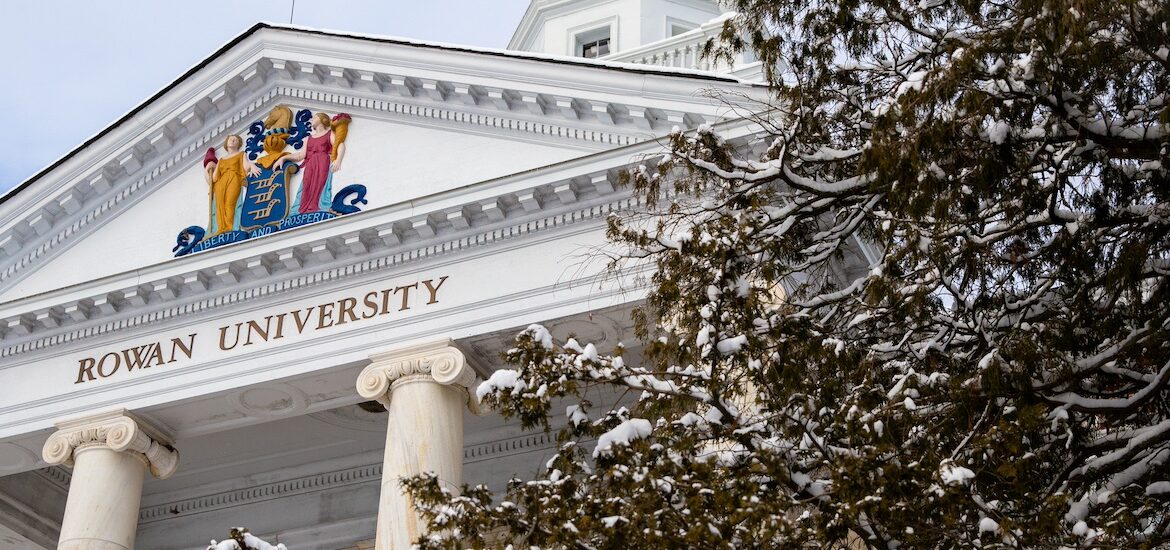
The Transition from High School to College for Neurodiverse Students A beloved and long-time valued leader of the Office of Accessibility Services at Rowan University, John Woodruff shares guidance for neurodiverse students and their parents on transitioning from high school to college. How Accommodations are Different Woodruff acknowledges how disabilities and their accommodations differ between […]
The Psychology of Colors
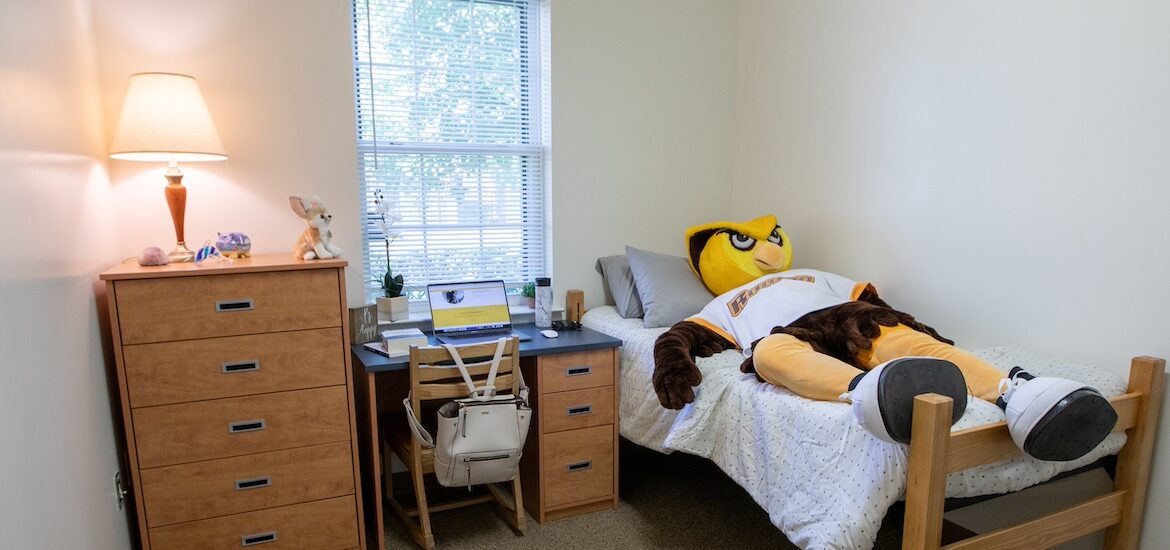
Part of a series with Rowan University’s Wellness Center, this collaboration aims to educate students about personal well-being options. For further updates, follow @rowanuwellness on social. Written by Wellness Center intern Anmol Patel, molecular & cellular biology major When students first walk into their dorm room on move-in day, they are greeted by plain walls, minimal […]
So You Want to Be an Entrepreneur? How to Get Started with an Entrepreneurship Degree
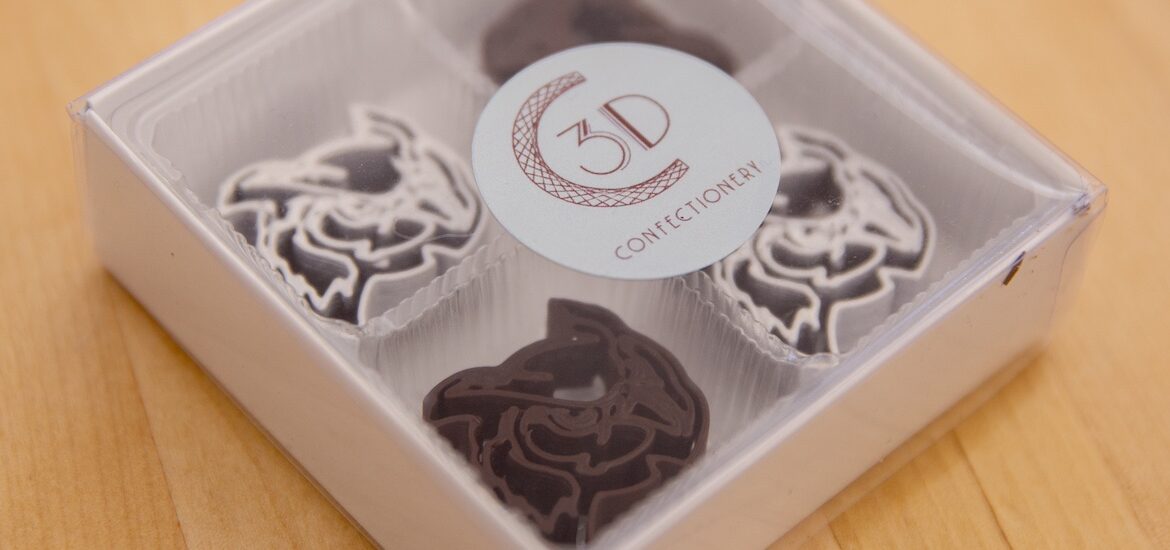
Do you dream of launching your own startup? Do you see opportunities where others see obstacles? If you’re always cooking up new ideas and wondering how to bring them to life, a degree in entrepreneurship might be the path for you. At Rowan University, our Bachelor of Science in Entrepreneurship is more than a business […]
The Inside Scoop on Career Paths for Advertising Majors
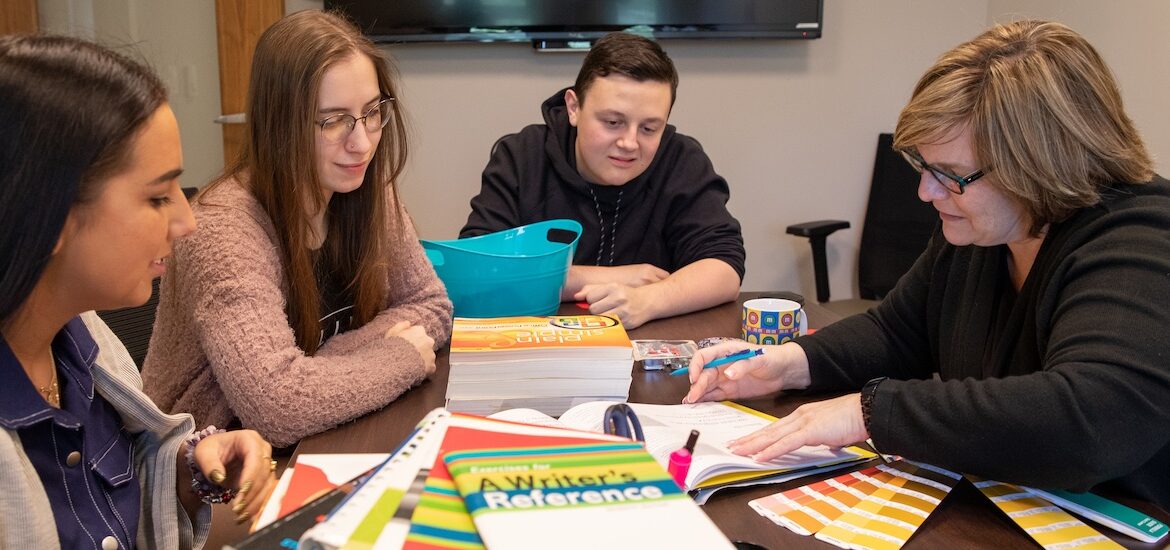
Rowan Advertising faculty & alumni illustrate ‘what can you do with an advertising degree?’ Long-time faculty within the advertising program at Rowan University, Professor Lou Rodolico has bridged academia and practical application within industry, for 40 years. A well-respected and popular professor, Professor Rodolico joined Rowan University in 2011 after a 27-year career as a […]
Is an Online Educational Technology Certificate Right for You?
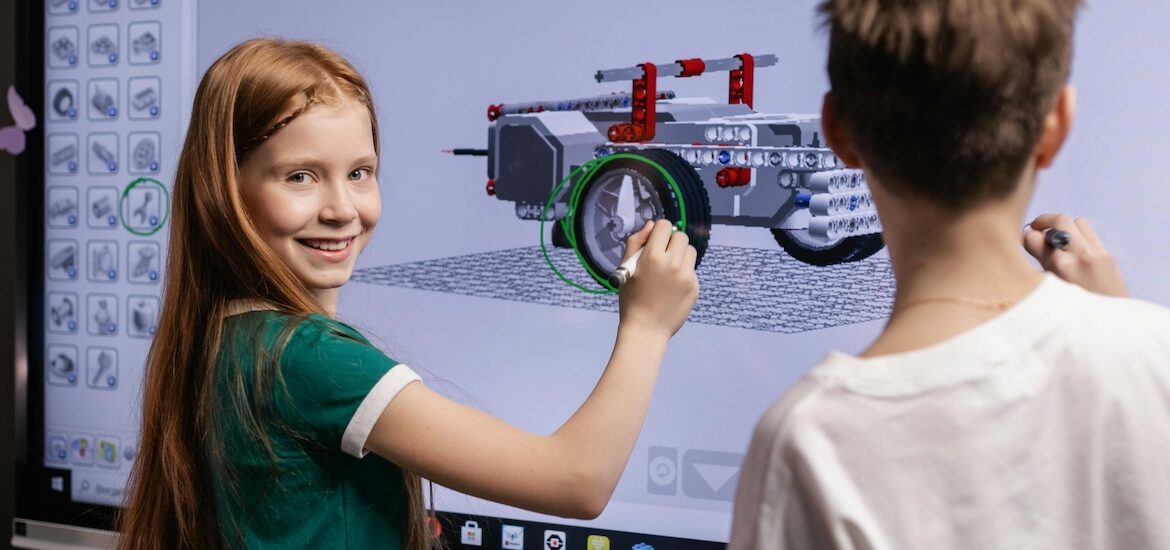
You’re looking to grow professionally—but not just for the sake of a title or a pay bump. You want to lead. Innovate. Make a lasting impact. Maybe you’ve wondered if there’s a way to merge your passion for teaching with your interest in technology. Or maybe you’re noticing how fast digital tools are shaping education—and […]
How Can I Become a Healthcare Administrator?
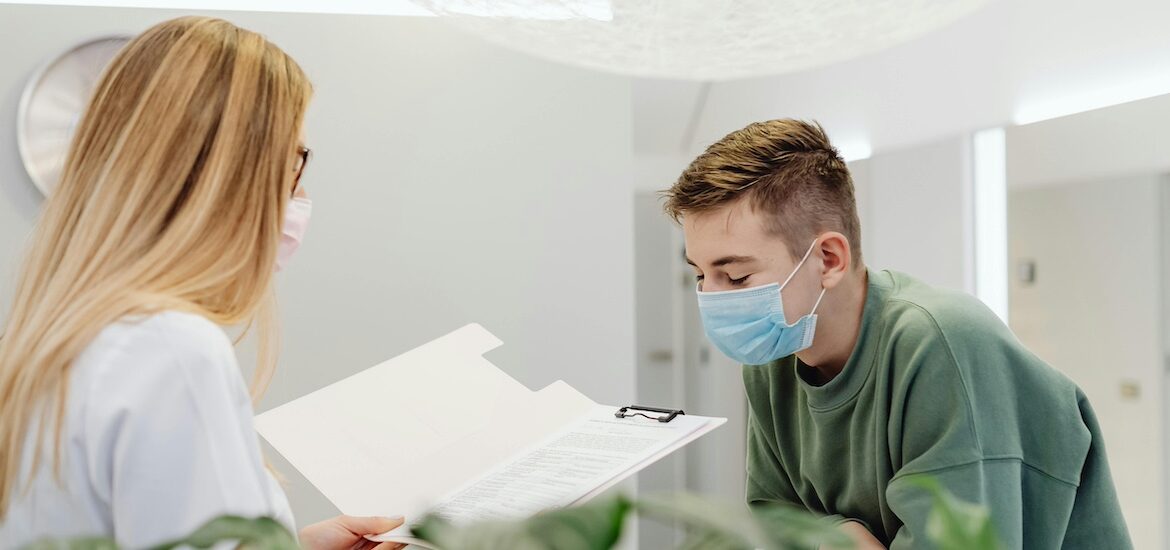
If you’re aiming for a leadership role in healthcare, becoming a healthcare administrator could be your ideal path. This profession offers a unique blend of business acumen and a commitment to improving patient care. In this guide, we’ll explore how to become a healthcare administrator, delve into the responsibilities of the role, and discuss salary […]
Why Self-Care Matters More Than Ever in College
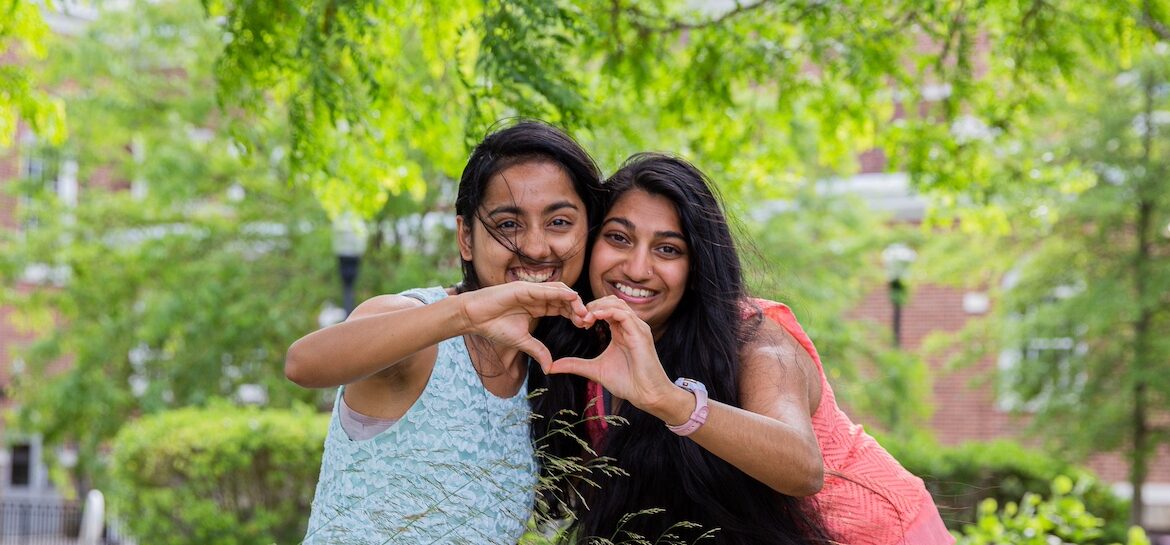
Part of a series with Rowan University’s Wellness Center, this collaboration aims to educate students about personal well-being options. For further updates, follow @rowanuwellness on social. Written by Wellness Center intern Gia Torsiello, psychology major When life gets overwhelming, stress can quickly build up, leading to anxiety, burnout, and even depression. As you read this blog, […]
What Can You Do With a Molecular and Cellular Biology Degree?
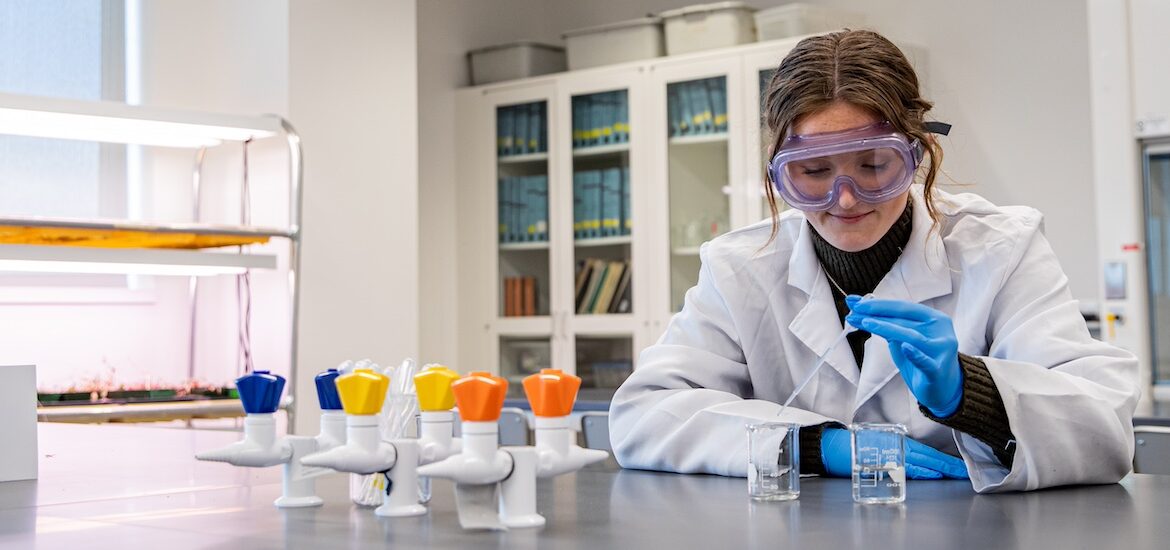
Information That Aspiring Molecular and Cellular Biology Majors Need To Know In simple terms, molecular and cellular biology is the study of how living things work at the smallest levels. It dives deep into the inner workings of cells, the molecules they’re made of, and how those molecules interact to keep us healthy—or sometimes, make […]
How Online Classes Transformed One Student’s College Experience
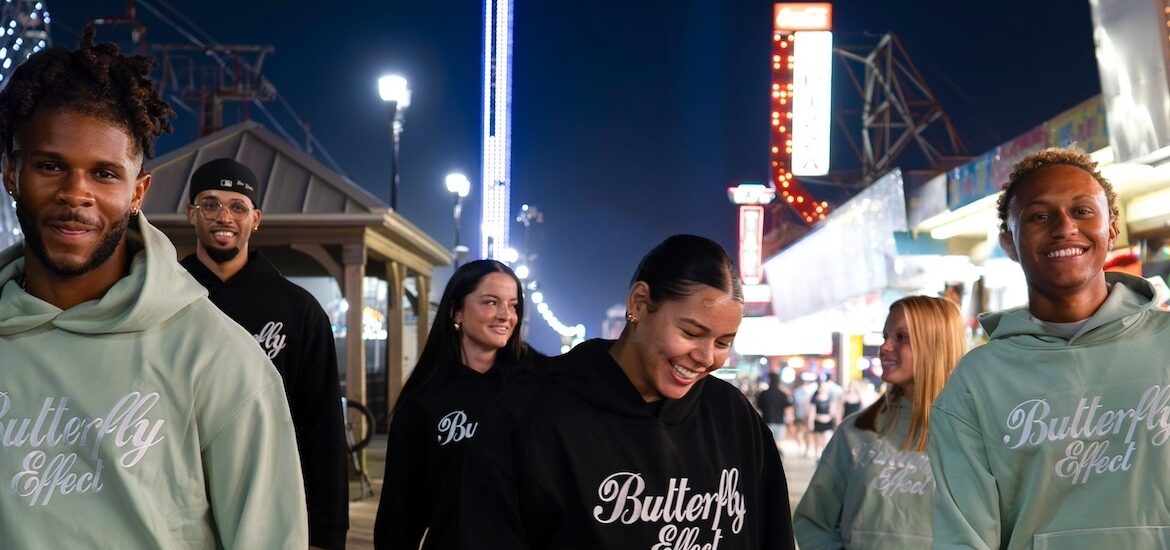
Senior Accounting Major at Rowan University Shares Why He Prefers Taking Classes Online In this first person perspective piece, graduating senior Joshua Bradley shares how he created a successful, well-rounded, and deeply meaningful college experience for himself. Joshua will graduate with a bachelor’s in accounting summa cum laude (meaning “with highest praise”), which is the […]
So You Want to Be a Medical Illustrator? Here’s How to Get Started
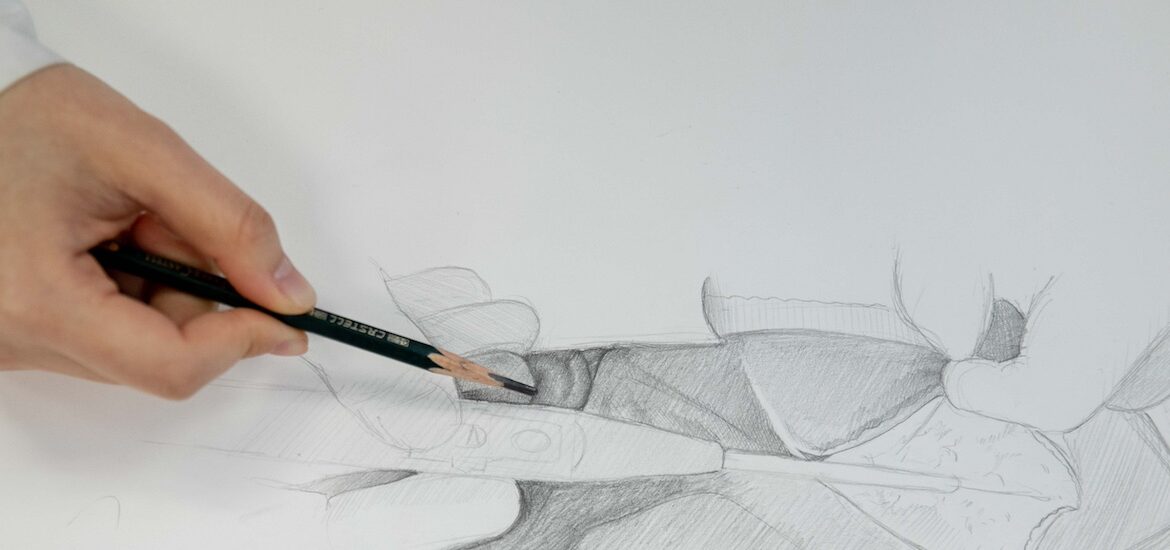
Step One: Consider Majoring in Biomedical Art & Visualization Ever wished you could blend your love of art with your fascination for science? Becoming a medical illustrator might just be the perfect career path. Medical illustrators are the creative pros behind the highly detailed visuals in textbooks, research papers, surgical guides, and patient education materials. […]
Navigating a Career in Surgery and Mentorship
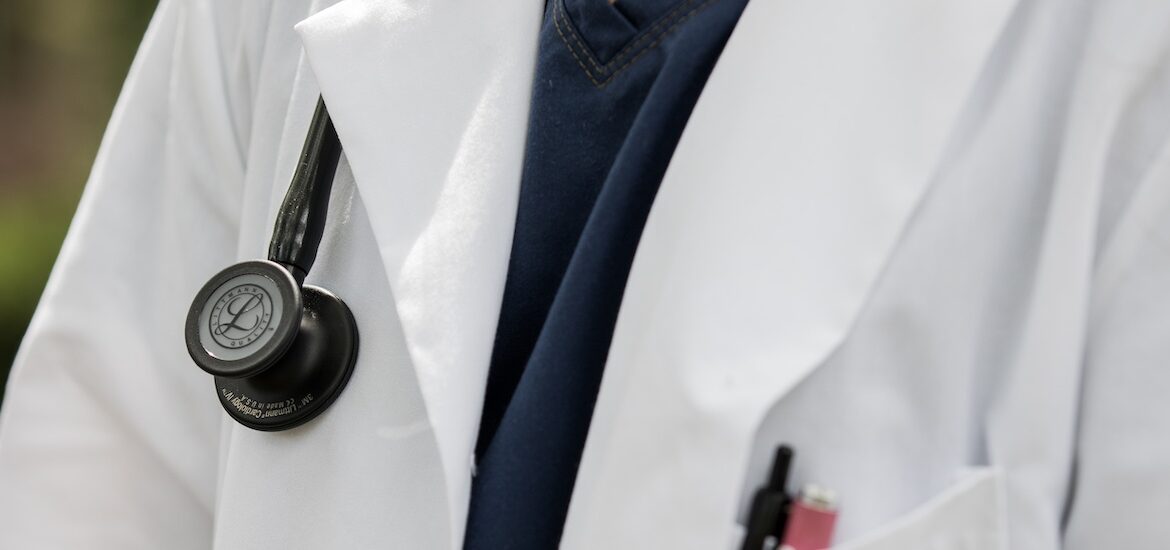
Rowan-Virtua School of Osteopathic Medicine Alumna Shares Her Story Meet Dr. Kay Yoon-Flannery, a co-director and a breast surgeon at MD Anderson Cancer Center at Cooper and an assistant professor of surgery at Cooper Medical School who graduated from Rowan-Virtua School of Osteopathic Medicine in 2011. She is here to share her inspiring journey of […]
Burnout in College: Seeing the Signs & How to Recover
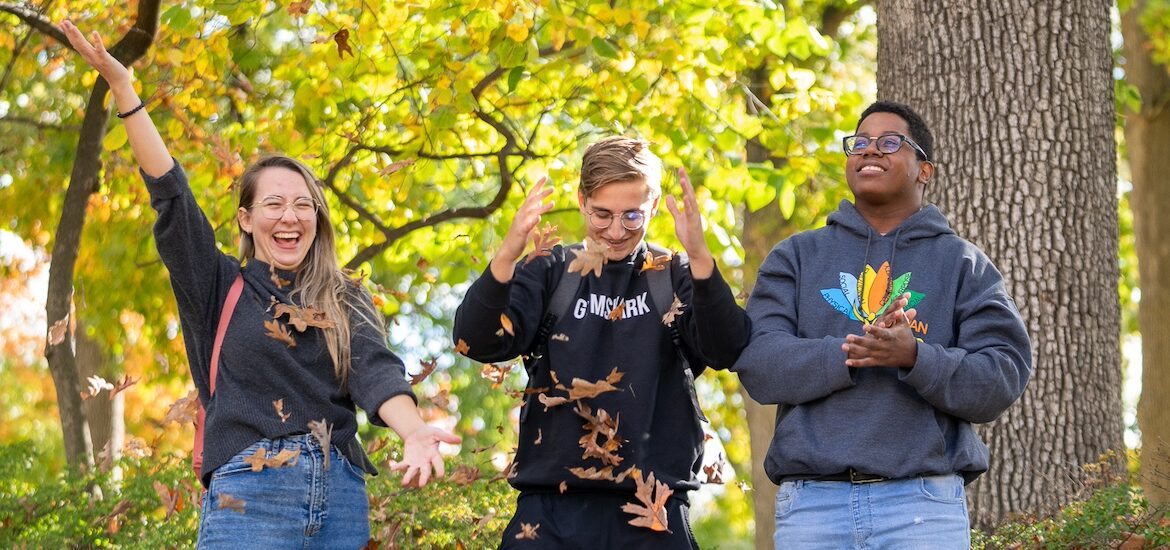
Part of a series with Rowan University’s Wellness Center, this collaboration aims to educate students about personal well-being options. For further updates, follow @rowanuwellness on social. Written by Wellness Center intern Amya Dickens, psychology major What is Burnout? Burnout is a state of chronic stress and exhaustion caused by academic and personal demands. Leah Rockwell, LPC, […]
Student Government President Shares Why He Takes Classes Online
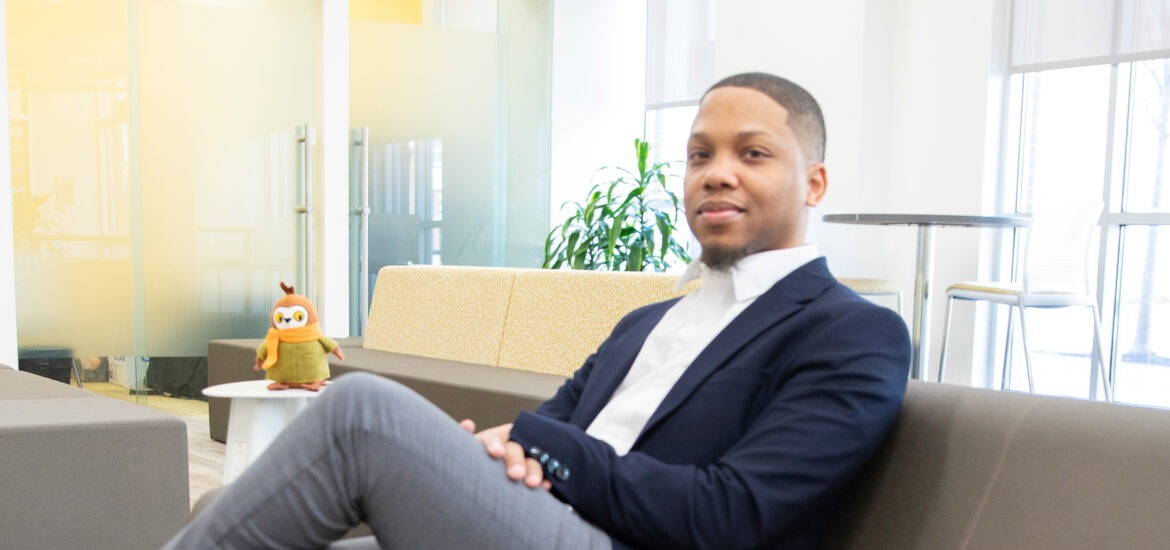
Rowan University Campus Leader Prefers Online Classes Rowan University senior Zackary Brown, a double major in both philosophy and public relations, will graduate this spring. This year Zackary stepped into the most impactful, and important, student leadership role on campus: that of student body president (SGA). Not only has he taken on significant leadership responsibilities, […]
What Can You Do With an Economics Degree?
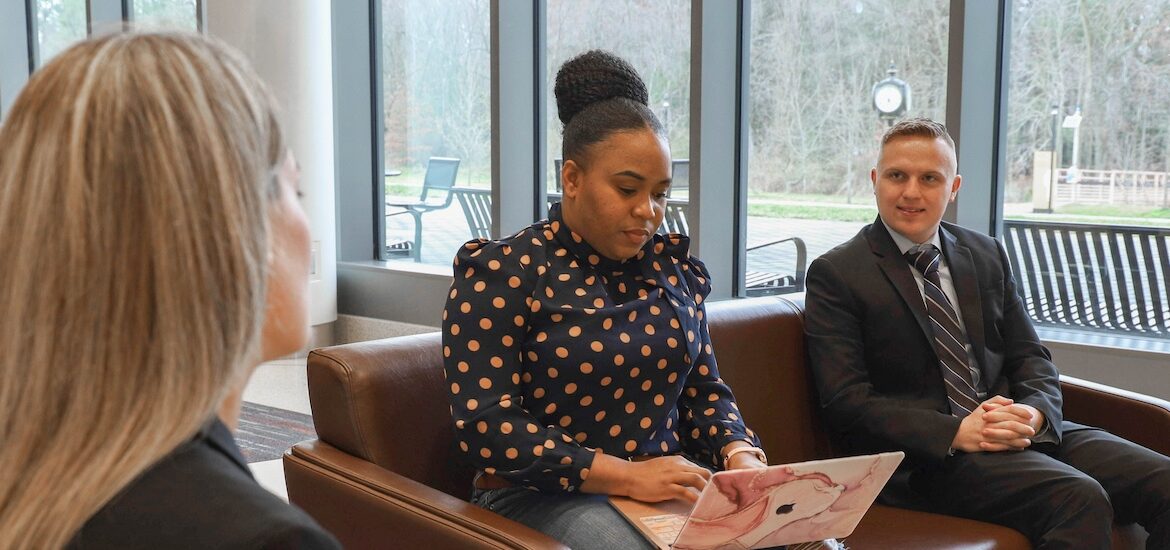
An Insightful Look at the Benefits of the Major & Economics Jobs Pursuing an economics degree offers a comprehensive understanding of how societies allocate resources, make decisions, and address challenges in various sectors. If you’ve ever wondered what you can do with an economics degree, the answer is: quite a lot. This major equips students […]
What Can You Do With a Computer Science Degree?
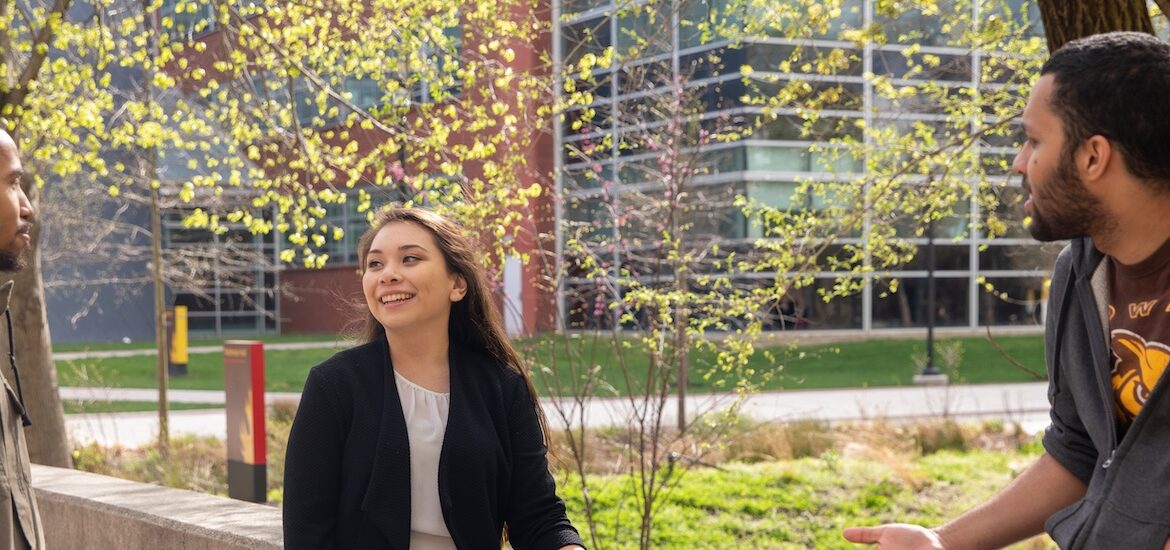
Whether you’re passionate about developing groundbreaking software, designing secure networks, or exploring artificial intelligence, a computer science degree equips you with the skills and knowledge to thrive in the ever-evolving digital landscape. What Does a Computer Science Major Learn? A computer science degree teaches you the principles and technologies of computers and networks to develop […]
First-Year Medical School Curriculum: One School’s Helpful Introduction
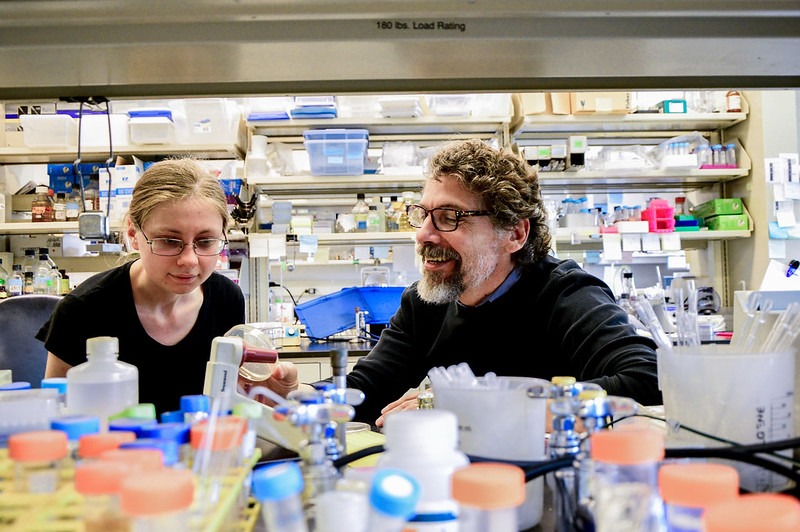
Center for Student Success (CSS) staff at Rowan-Virtua School of Osteopathic Medicine shares insight on student-focused approach An Associate Director, Academic Advisor/Coach, Stephanie Dearden provides advising and academic support to first- and second-year students on the Sewell, NJ, campus. She also oversees the SOM Tutoring Program, and coordinates the Pre-Matriculation and Guided Learning Groups Programs. Dearden […]
How Sharing Books with Children Became One Man’s Mission
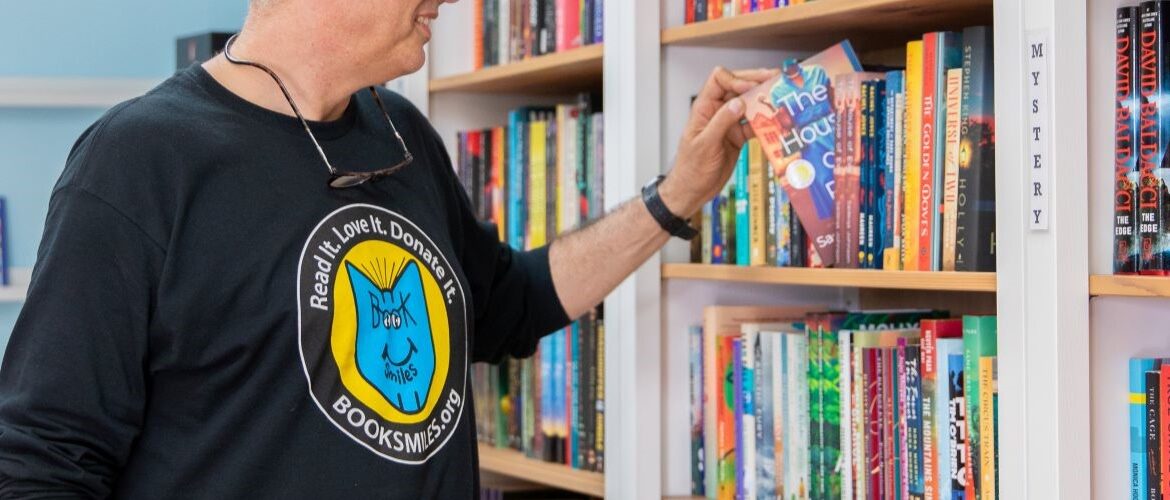
Founder of nonprofit BookSmiles has shared over 2 million books with local children Larry Abrams graduated from the College of Education’s Supervisor program in 2008, and has since gone on to found a remarkable nonprofit, BookSmiles. Here, he shares the story of how it came to be , how his experience at Rowan influenced him, […]
Holocaust & Genocide Education Scholar Leads Study Abroad Programs

Rowan University History Professor Curates Impactful & Transformative Experiences for Students History professor and Associate Director for the Rowan Center for the Study of Holocaust, Genocide, and Human Rights Movements, Professor Jody Manning has crafted study abroad programs that promise an education far beyond the confines of a traditional classroom. His study abroad trips embody […]
How to Become a Family Nurse Practitioner with an MSN Degree
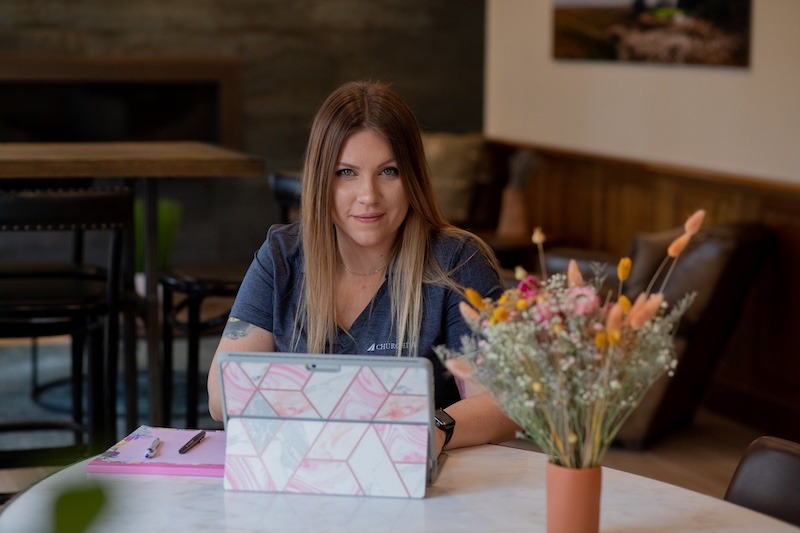
An MSN FNP Degree Opens Doors for Registered Nurses Looking to Advance their Careers An MSN Family Nurse Practitioner program will prepare dedicated nursing professionals for advanced practice roles in diverse healthcare settings. Rowan University’s nurse practitioner program combines rigorous academic training with hands-on clinical experience, ensuring graduates are equipped to deliver high-quality patient care. […]
Rowan Finance Major Lands Prestigious International Internship
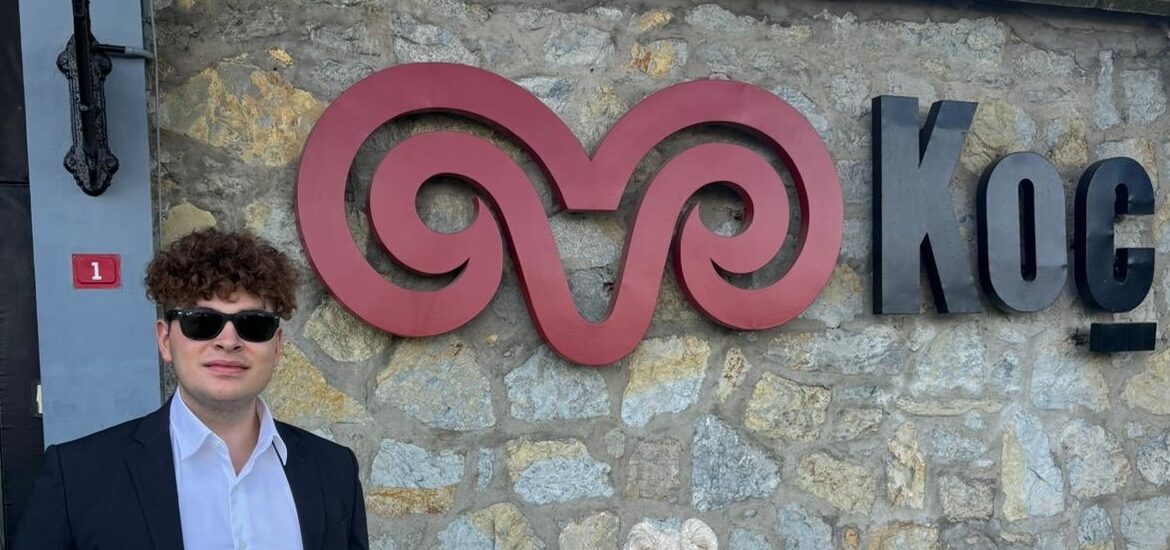
Tyler Guner Shares His Summer Internship Experience with Turkey’s Leading Conglomerate Experiential learning takes many forms at Rowan University, including internships, student teaching, clinical and lab work, and research. Meet Tyler Guner, a Rowan University finance major with a minor in management information systems (MIS). A go-getter who landed an incredible summer internship thousands of […]
How to Become a Geriatric Nurse
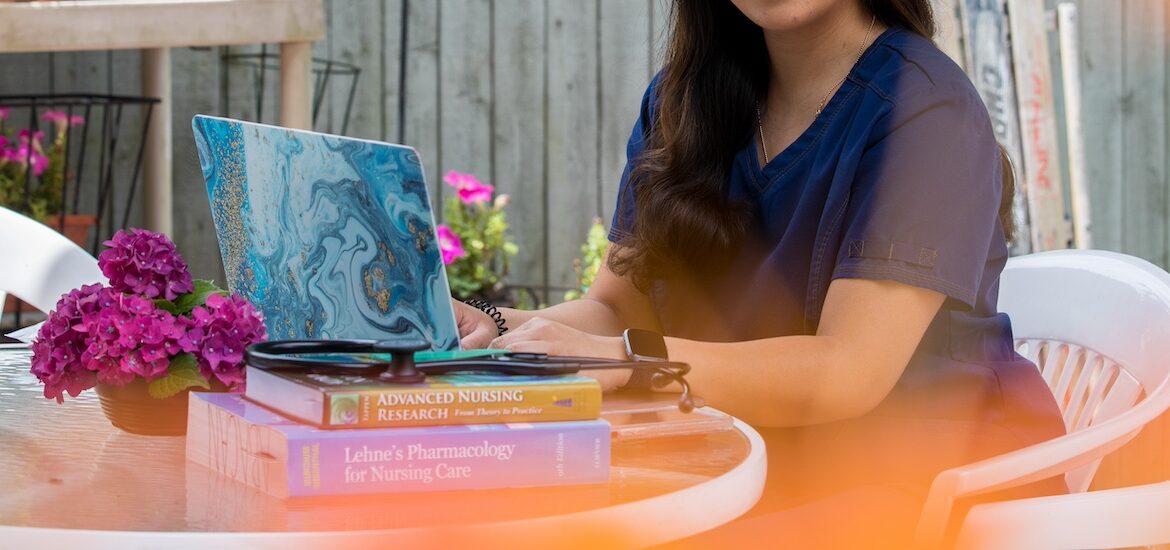
Earn Your Geriatric Nurse Degree Online and Step into a Rewarding Career As the population ages, the demand for skilled geriatric nurses continues to rise, making this a gratifying and essential career path. Geriatric nurses specialize in the care of older adults, addressing their unique health needs and improving their quality of life. If you’re […]
What Can You Do With A Data Science Degree? One Professor Explains The Possibilities [VIDEO]
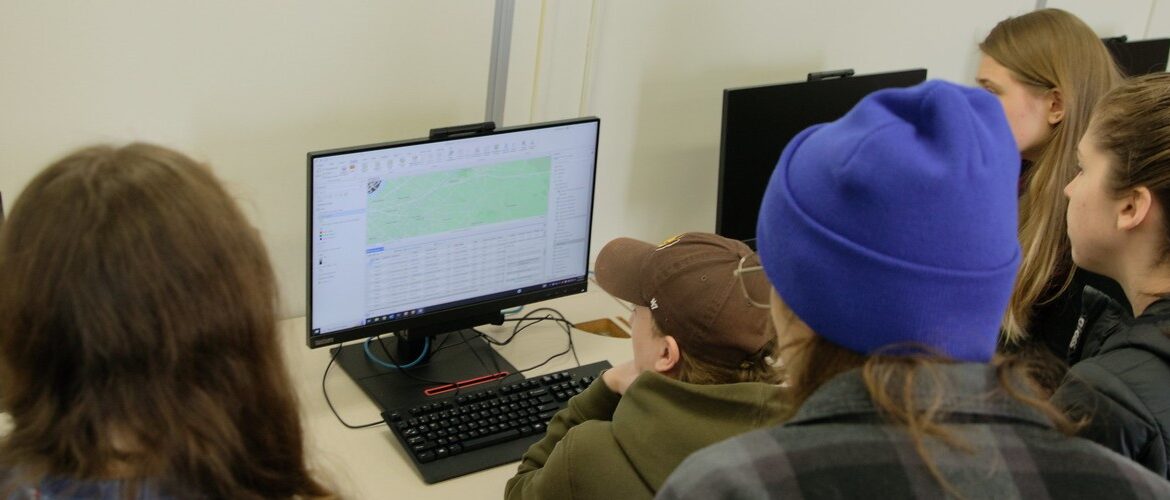
Data Science at Rowan University: Real-World Skills, Hands-On Experience, and Endless Career Opportunities Charalampos “Babis” Papachristou, Ph.D., is an Associate Professor and Assessment Coordinator for the College of Science and Mathematics at Rowan University. Here, he discusses the possibilities for careers and programs for students pursuing a Data Science degree at Rowan, whether those students […]
- Engineering
- ...
6 High-Demand Careers You Can Pursue with a Construction Management Degree
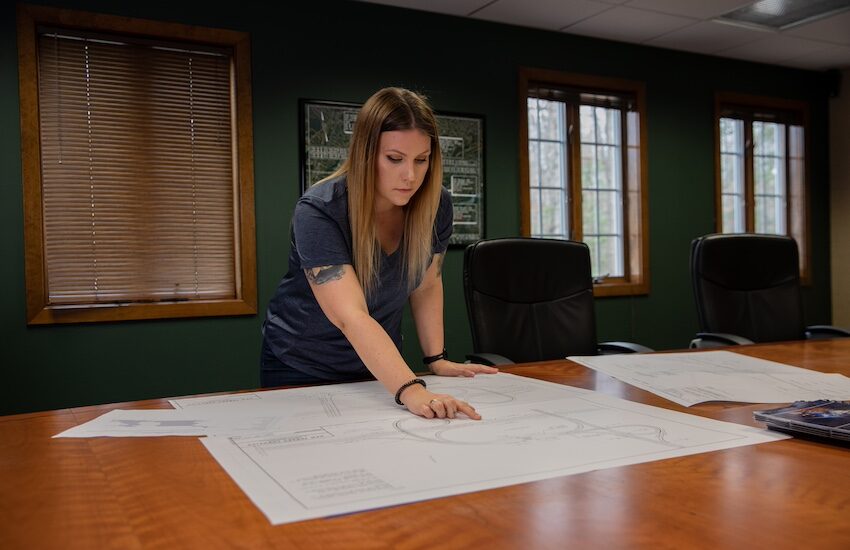
What Can You Do with a Construction Management Degree? A bachelor’s degree in construction management can open doors to in-demand careers across residential, commercial, and infrastructure projects. Whether you’re managing timelines, budgets, or entire sites, these roles play a vital part in shaping the built environment. And with Rowan University’s fully online, flexible Bachelor of […]
How Long Does It Take to Get a Master’s in Nursing?
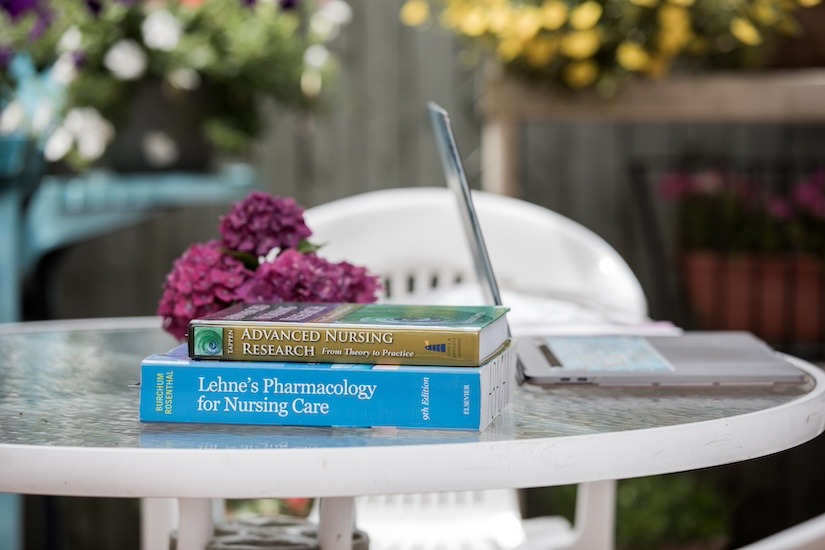
Understanding Your Personal Timeline to an MSN Degree At Rowan University, we understand the importance of advancing your nursing career. A master’s in nursing (also known as an MSN degree) not only prepares you for leadership roles but also allows you to specialize in critical areas of nursing. But how long does it take to […]
What Does an Adult Gerontology Nurse Practitioner Do?

Introduction to What is an Adult Gerontology Nurse Practitioner As our population ages, the need for healthcare professionals specializing in adult and geriatric care grows significantly. Adult Gerontology Nurse Practitioners (AGNPs), also known as Adult Gerontology Primary Care Nurse Practitioners (AGPCNPs), are crucial in promoting health, managing chronic conditions, and providing comprehensive care to adults […]
A Guide: The Best Masters’ Degrees for Nurses
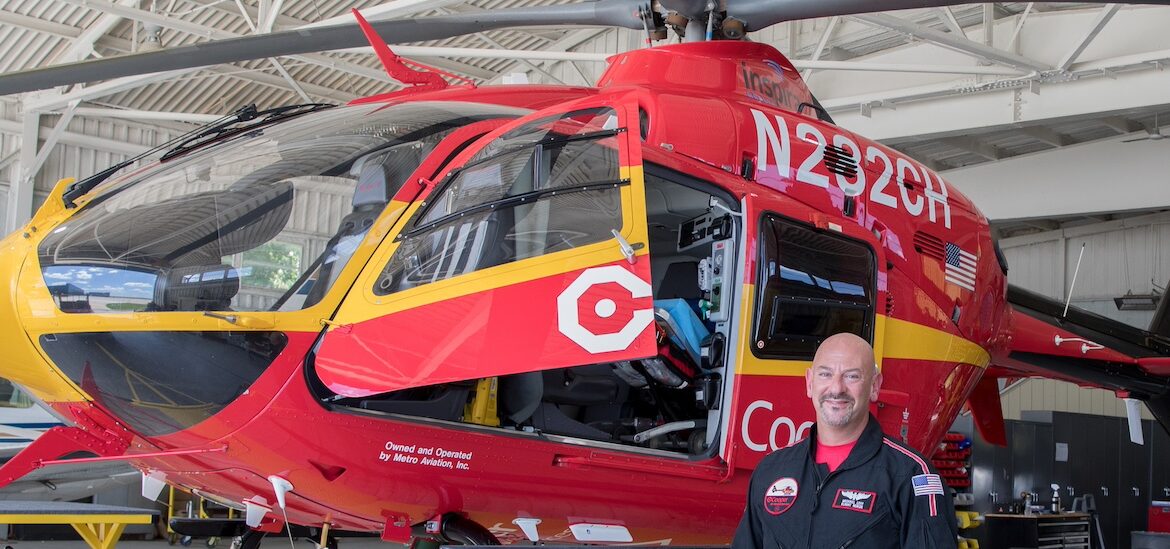
Understanding the Landscape of MSN programs to Advance Your Career As the healthcare landscape evolves, nurses aiming to elevate their careers increasingly turn to master’s degrees in nursing. Advanced qualifications not only enhance clinical expertise but also open doors to leadership roles, specialized practice areas, and improved patient outcomes. If you’re wondering why to choose […]
How a Computer Information Systems Degree Accelerates Your Career
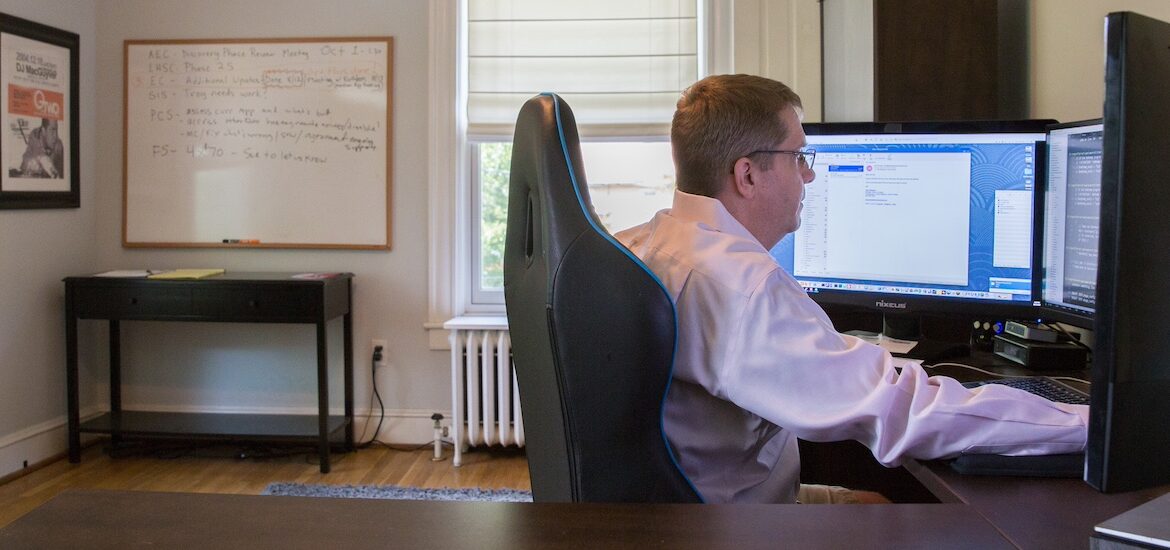
Rowan University’s Information Technology Degree Prepares Grads for Leadership Roles in IT In today’s rapidly evolving digital landscape, the demand for skilled leaders in Information Technology (IT) has never been higher. Earning a bachelor’s degree in computer technology helps job candidates stand out in a competitive field. Rowan University’s Bachelor of Arts (B.A.) in Computer […]
13 Insightful & Informative Reasons To Get an Online Cybersecurity Degree

Rowan University Meets Growing Employer Demand Launching Its Online Master’s In Cybersecurity Degree Cybersecurity is one of the fastest-growing and most in-demand fields in today’s workforce. With the rise in cyberattacks and data breaches, professionals skilled in protecting digital information are critical to every industry. In 2024 alone, the United States experienced a significant number […]
- Engineering
- ...
What is Engineering Management? Key Roles, Responsibilities & Career Benefits
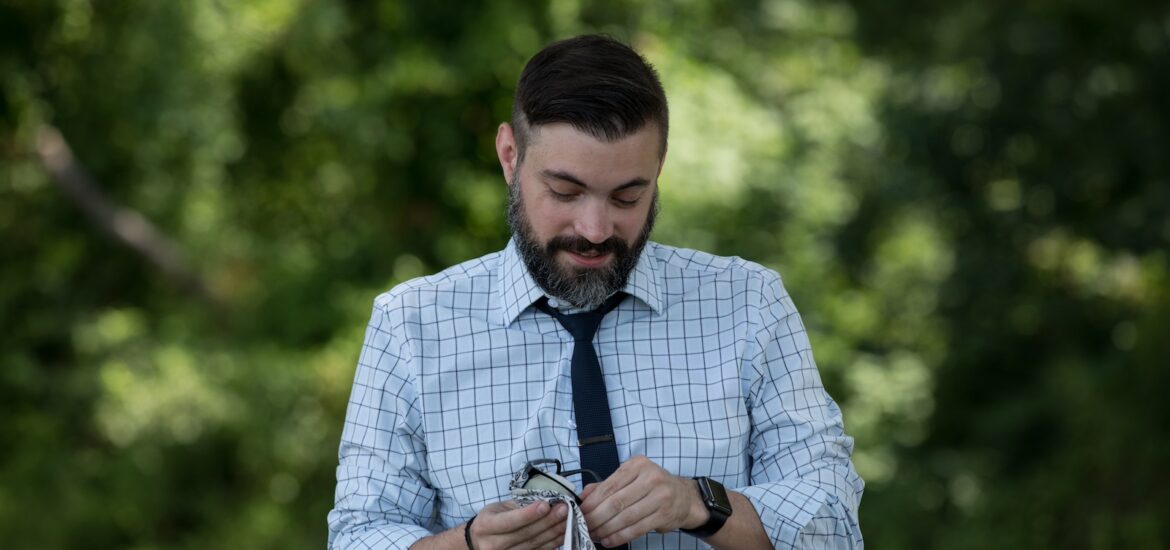
Engineering management is a fascinating field that combines engineering principles with business strategies to efficiently lead technical projects and teams. As we will outline, this discipline encompasses project management, resource allocation, budgeting, and strategic planning. Essentially, engineering managers bridge the gap between engineering and management, ensuring projects meet both technical specifications and organizational goals. As […]
What to Know About Becoming a Nurse Executive or Chief Nursing Officer
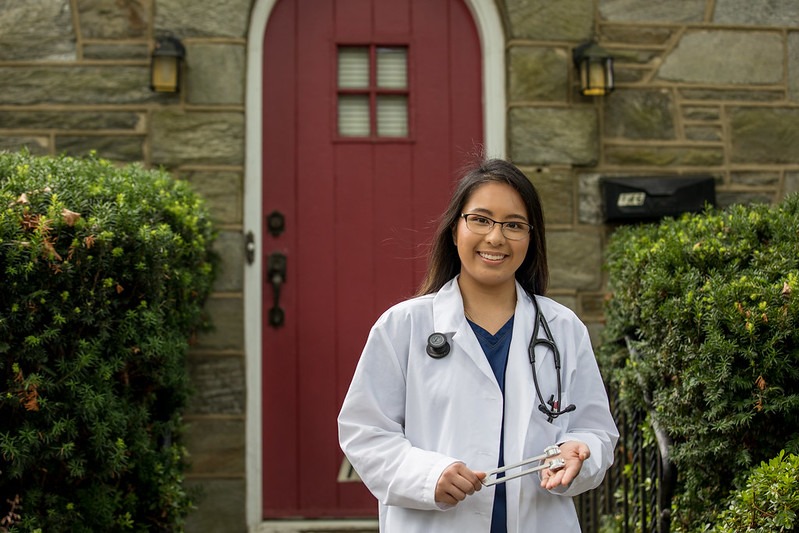
Rowan University’s Online M.S. in Nursing Places Chief Nursing Officer Within Reach In the dynamic landscape of healthcare, leadership is paramount. Nurse executives play a crucial role in shaping policies, managing teams, and ensuring the delivery of quality patient care. If you’re a registered nurse aspiring to ascend into executive roles, Rowan University’s online Master […]
Nurse Educators: Teaching the Future of Healthcare
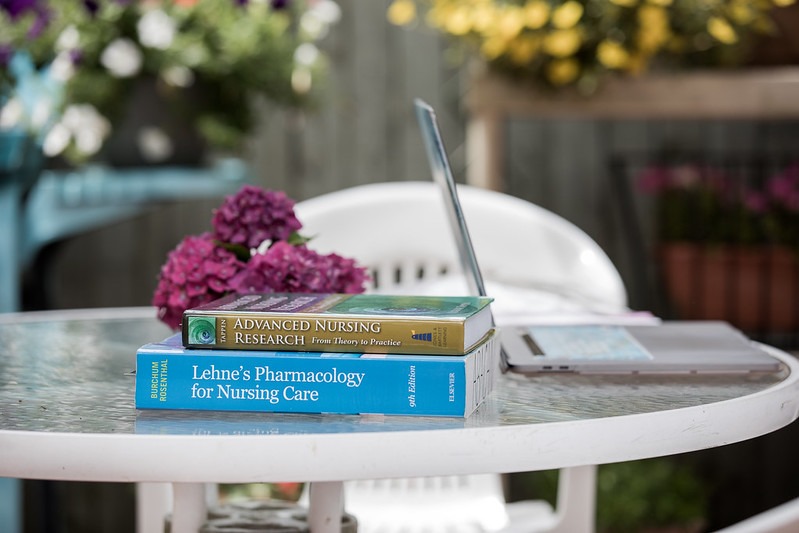
Embark on a rewarding personal and professional journey with Rowan University’s Online MSN Nurse Educator program In today’s rapidly evolving healthcare landscape, the role of nurses extends beyond bedside care to encompass leadership, research, and education. One pivotal position that merges clinical expertise with teaching acumen is that of the MSN Nurse Educator, also known […]
What to Know About Becoming a Psychiatric Mental Health Nurse Practitioner
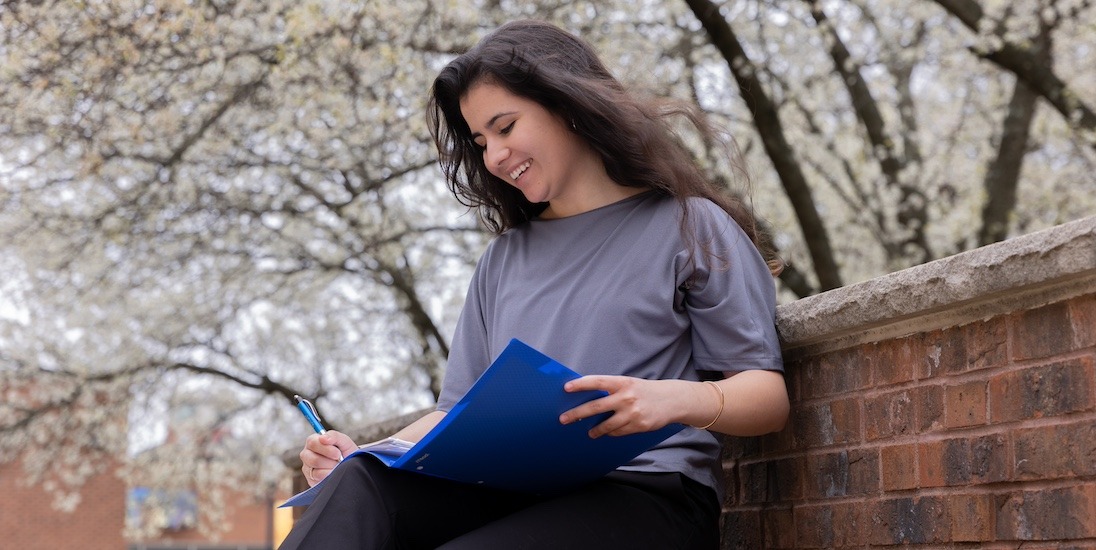
Impact Patients’ Lives as a Mental Health Nurse Practitioner Rowan University’s online Master’s in Psychiatric Mental Health Nurse Practitioner program equips nursing professionals with the tools to excel in the field of mental healthcare. The curriculum focuses on essential skills and knowledge for providing top-notch psychiatric services. With a strong emphasis on clinical practice, evidence-based […]
What Can You Do With an Anthropology Degree?
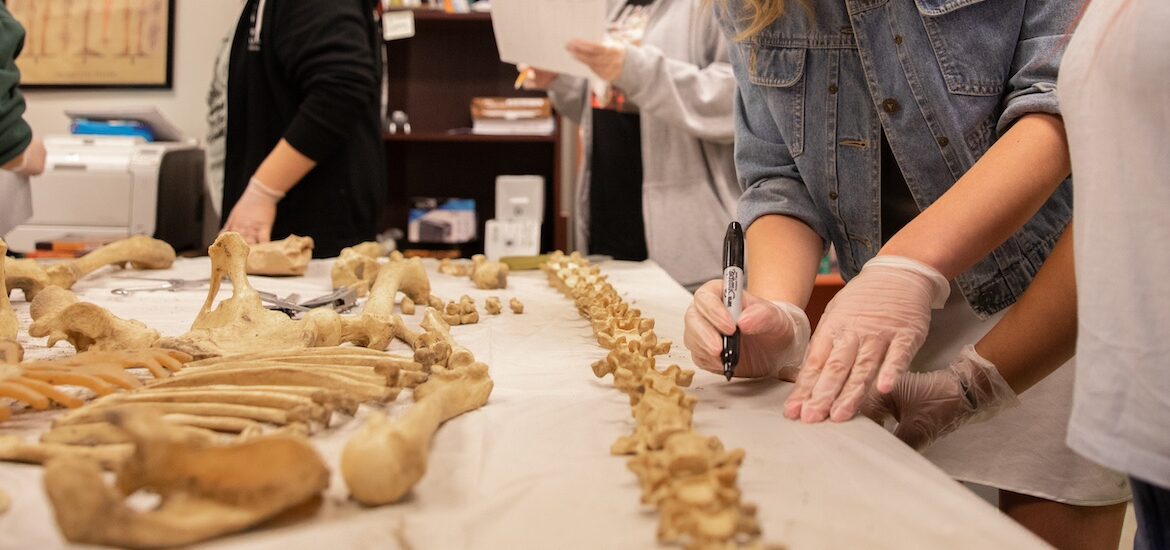
Rowan University’s Bachelor’s of Anthropology Degree Provides Grads with Foundation for Success Anthropology, the study of human societies, cultures, and their development, offers a comprehensive understanding of the complexities of human behavior and social structures. This broad perspective equips graduates with versatile skills applicable across various industries. Rowan University’s anthropology program, with options to either […]
A Handbook for Students Relocating to New Jersey from India
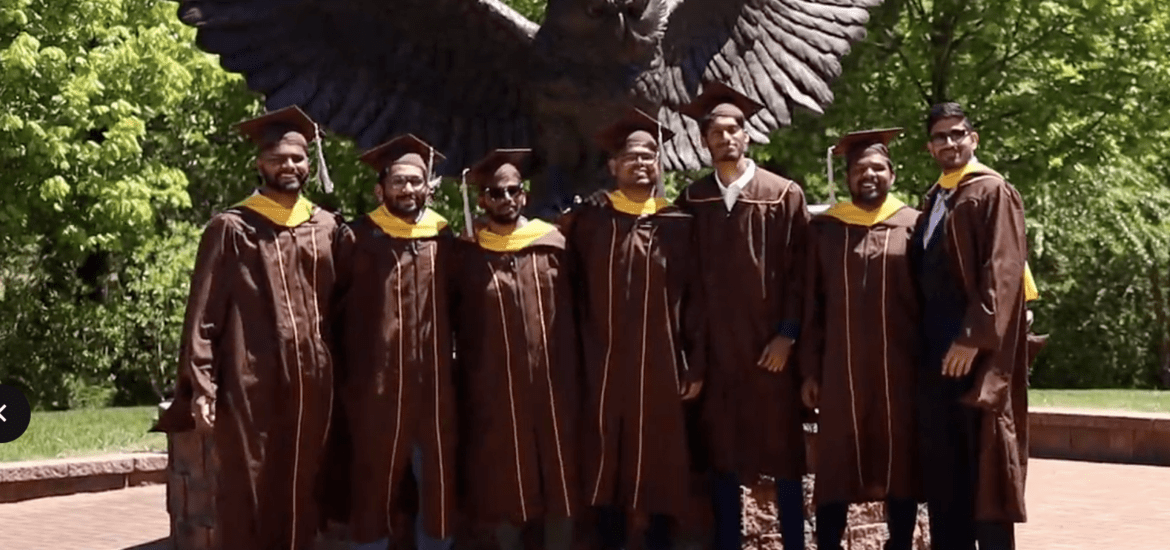
A helpful guide from an international student from India studying in the United States at Rowan University Written by Hanisha Hanumanula, MS Computer Science As an Indian student embarking on your academic journey in New Jersey, you’re about to experience an exciting blend of cultural diversity, educational excellence, and personal growth. This blog will help […]
Language and Culture: Rowan’s World Languages Major Prepares Global Citizens

Faculty chairperson & alumni answer: How does a world languages degree benefit students? The Department of World Languages at Rowan University, led by Dr. Marilyn S. Manley, is committed to preparing students for active participation in language exploration and cultural understanding. The department offers a diverse array of courses and academic programs in American Sign Language, Arabic, […]
Alumni Success: The Blending of Two Degrees To Create a Personalized Path to Success

Rowan University Political Science & Communication Studies Graduate Details Launching His Post-College Career After graduating from Rowan University in 2019 with two bachelors’ degrees, one in communication studies and the other political science, Conor Schmiegel’s career would take him in a variety of directions with a variety of ebbs and flows that leverage both of […]
Trees of Life: Biological Sciences Major Grows Passion for Research
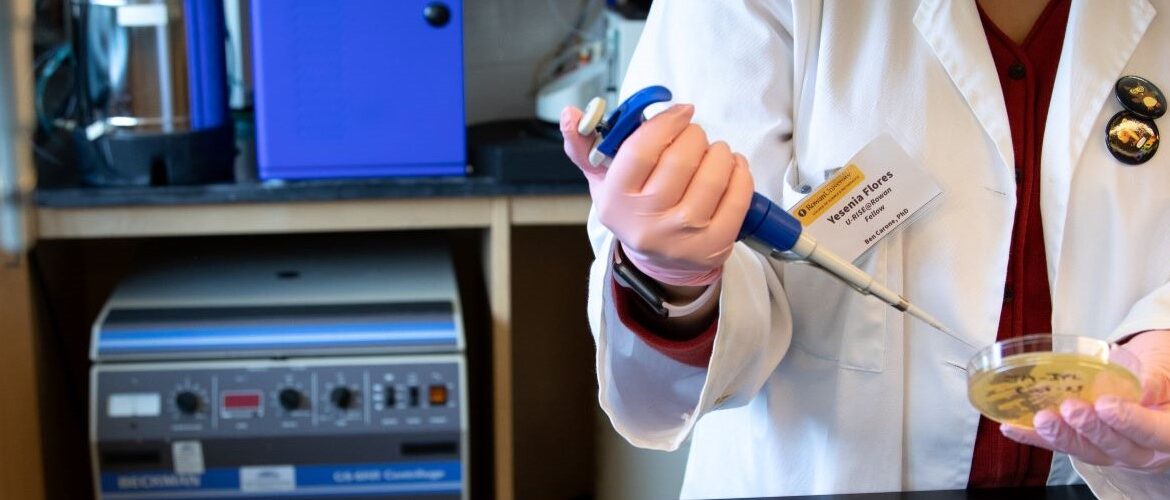
One Student’s First-Year & Sophomore Year Research Opportunities & Campus Involvement at Rowan University By the end of his first year at Rowan University, biological sciences major Brian Libby of Audubon, NJ (Camden County) had already accrued significant hands-on experience with research, and landed a summer position with faculty as an undergraduate research assistant. That […]
Students Witness Once-in-a-Lifetime Astronomy Event [VIDEO]
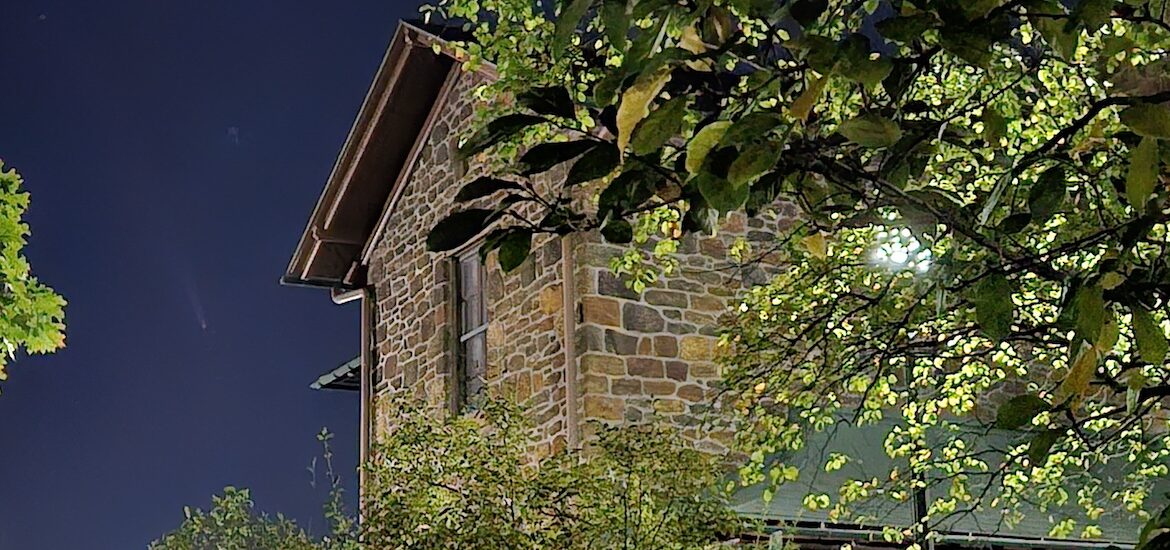
Astronomy faculty at Rowan University invite students across campus to experience rare comet from observation deck of Science Hall If you’ve ever dreamed of stargazing or witnessing rare celestial events, Rowan University is the perfect place to make that dream a reality. Last week the campus hosted an incredible comet viewing event, attracting students, faculty, […]
Moving Toward a Healthy Lifestyle: Exercise is Medicine Club President Talks Fitness
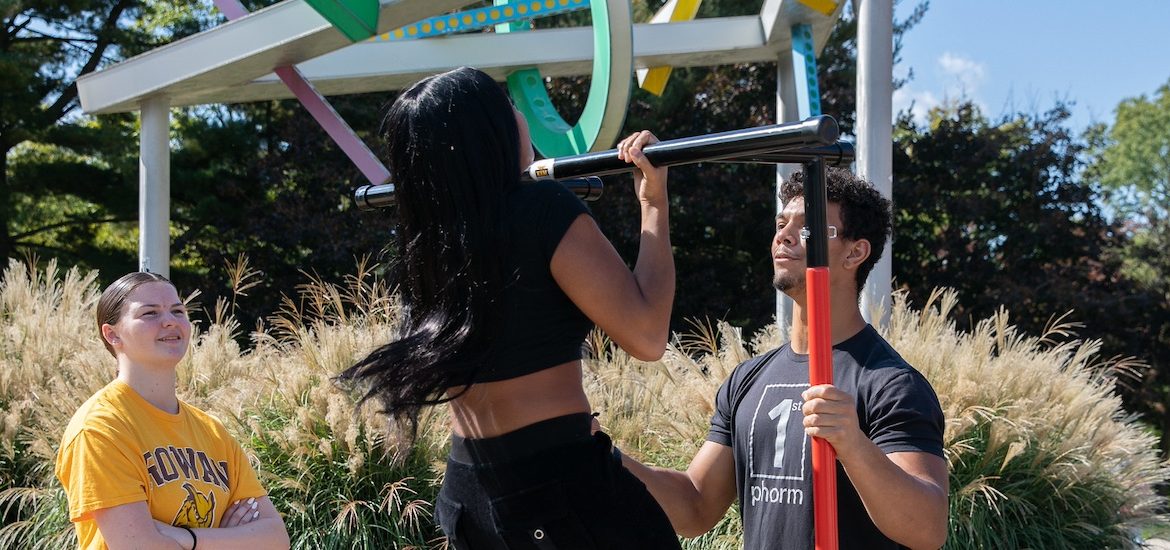
Rowan University’s Exercise Science Program Shapes Futures, Both In and Outside of the Classroom Kevin Rice, president of the Exercise is Medicine club, tells the story of how Rowan helped him further his success in the exercise science field. Graduating senior exercise science major from West Deptford, NJ (Gloucester County), Kevin Rice says exercise science […]
Going Away to College Close to Home: Mantua Resident Becomes Campus Leader at Rowan University
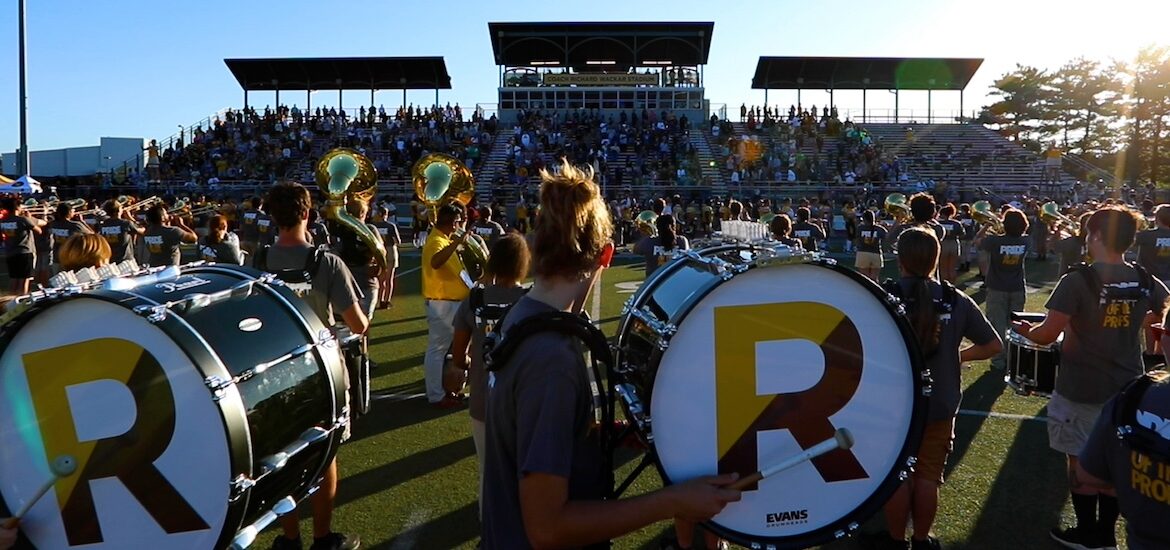
A Brief Conversation with Community Assistant, Student Government AVP & Admissions Ambassador Emma Redmond [Fall 2024 update – congratulations to Emma, who graduated and accepted a systems engineering position in Rhode Island.] Even though Emma Redmond, of Mantua, NJ (Gloucester County) lives within driving distance of Rowan University, she and her family decided that Emma […]
On a ‘Collision’ Course With Success: Entrepreneurship Student Talks Opportunities and Resources at Rowan University
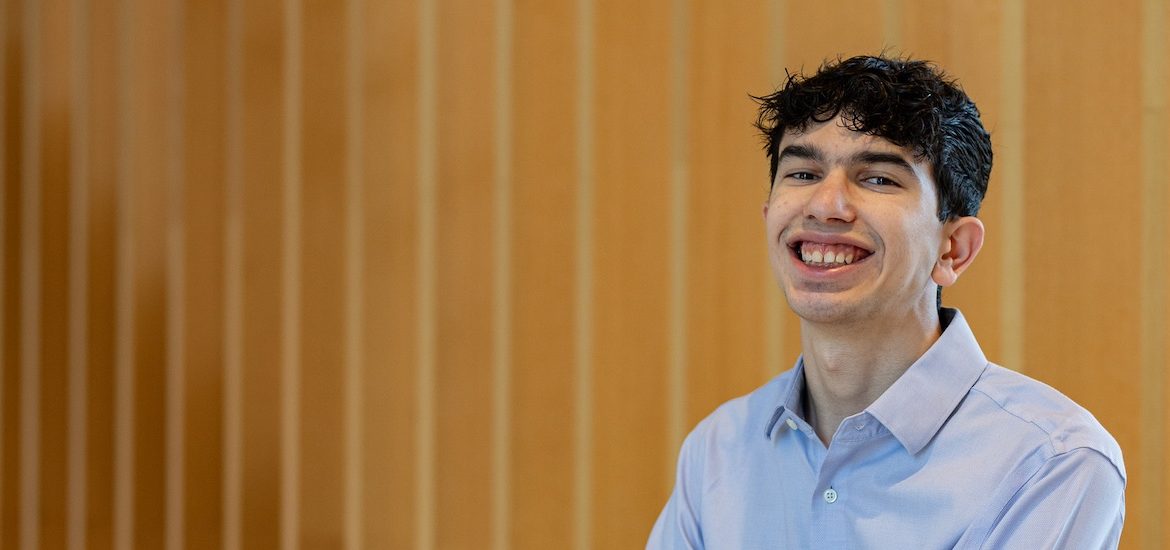
Trevor Ditullio, a recently graduated senior Entrepreneurship major, talks about his experience in the program and the work he has experienced in the field to help to build the foundation for his post-graduation life. With a long work history already, graduating senior Trevor Ditullio reflects: “I work at one of the largest collision repair centers […]
Purposeful & Powerful: Master of Social Work Launches
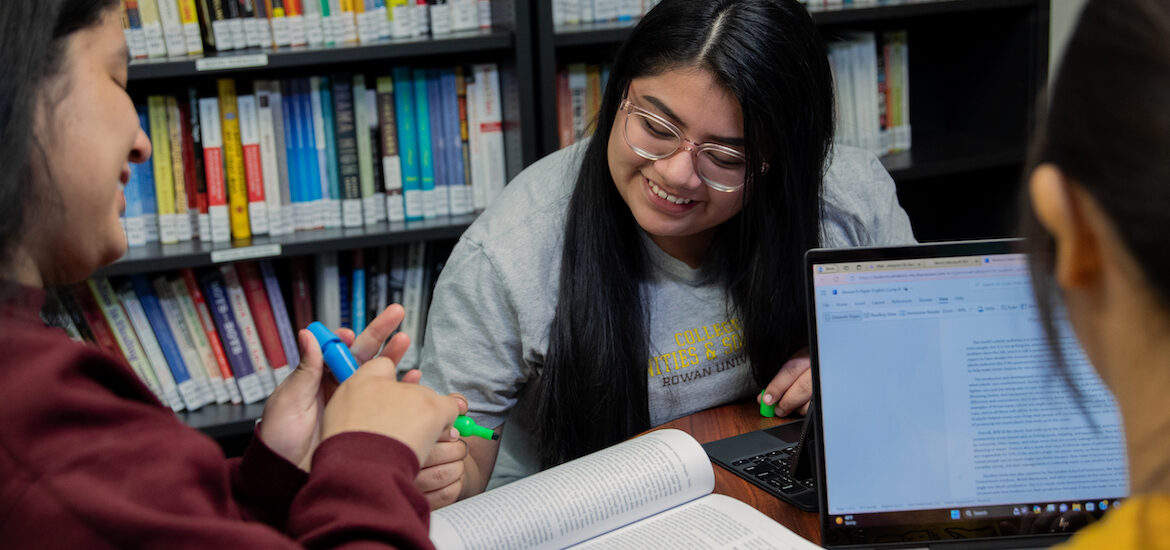
Rowan University’s Master of Social Work (MSW) Program Inspires Students & Their Futures Rowan University’s newly launched Master of Social Work has been a labor of love two years in the making. Led by program director Dr. Mary Kay Tuohy, who holds a doctorate in clinical social work from the University of Pennsylvania, and director […]
10 Ways To Support Rowan LGBTQIA+ During Pride Month and Beyond
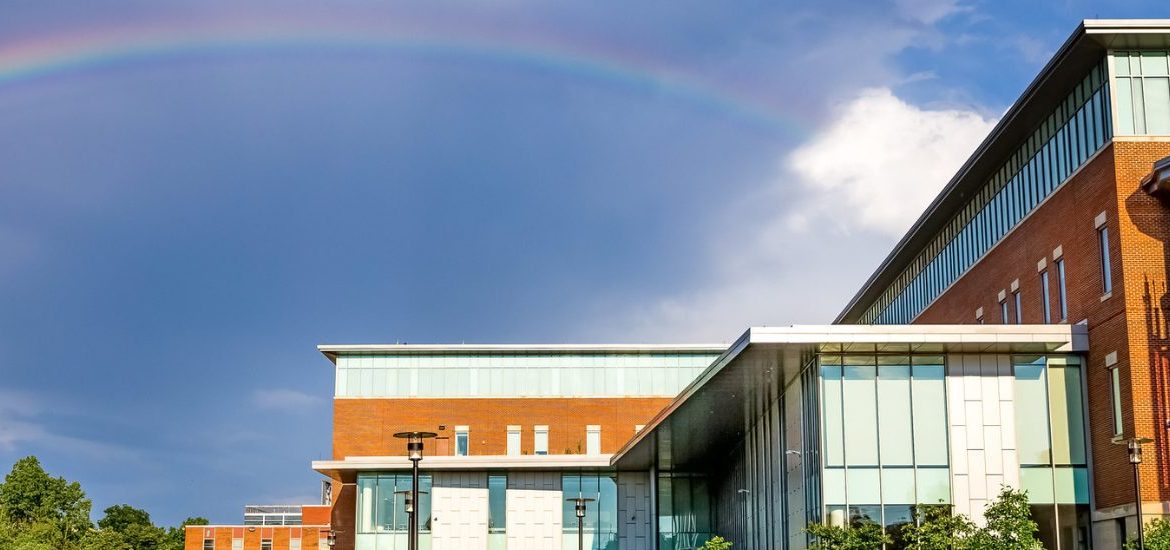
Rowan Supports the LGBTQIA+ Community 365 As the first sun rises in the month of June, love is in the air with the beginning of Pride month! With that being said, here are ten ways you can celebrate and support the LGBTQIA+ community throughout the month of June and beyond here at Rowan University. Many […]
Writing Creative Non-Fiction, My Favorite Class at Rowan University

This story is a part of the “My Favorite Class” series. With 100+ majors and countless areas of faculty expertise across campus, dip into one of these classes to fulfill your Rowan University course requirements. [Editor review and update November 15, 2024.] As I complete my final semester here at Rowan University, I’ve taken a vast […]
Rowan University Social Media Seeks Student Workers

Award-Winning Social Team Seeks Students For Experiential Learning Opportunities On Rowan’s Glassboro Campus Be creative. Be dynamic. Be a part of Rowan University’s social media team. With paid student worker positions available within both content creation and social media community monitoring, gain the experience you need to propel your post-graduation career forward with a well-rounded […]
Can You Teach Someone Entrepreneurship? This Successful Rowan Alumnus Says Yes

From Classroom to CEO: Unveiling the Success Story of Anthony Magaraci, a Rowan Entrepreneurship Alumnus Anthony Magaraci, Entrepreneurship ‘06 alum, gives insight on his successes since graduating from Rowan’s entrepreneurship program. A member of the inaugural class of the entrepreneurship program within the William G. Rohrer College of Business, Anthony Magaraci graduated in 2006 alongside […]
Leap Year Baby, And Rowan University Senior, Turns “6”

The entrepreneurship major shares his unique February 29 birthday with just 0.06 percent of the 8 billion people on Earth
Rowan University NAACP President on Cultivating a Caring Community for Students of Color

This Black History Month we hear from Esther Lendore, president of Rowan NAACP, on her journey as a Rowan student and her passion for creating a sense of community for students of color. A double major in political science and law & justice studies, senior Esther Lendore, from Far Rockaway, NY, holds a variety of […]
How College Students Can Break the Procrastination Cycle

Part of a series with Rowan University’s Wellness Center, this collaboration aims to educate students about personal well-being options. For further updates, follow @rowanuwellness on social. Written by Wellness Center intern Dabany Garris, psychology major with a concentration in child behavioral services What is Procrastination? Procrastination. Take a minute and think about some of the things […]
Then & Now: Historic Campus Photos Recreated for Rowan University’s Centennial [VIDEO]

The more we change, the more we stay the same; we remain student-centered, 100 years later
Three-Time Alumnus Reflects on Rowan and Personal Growth

Tobi Bruhn has witnessed the evolution of Rowan by first attending Rowan for his bachelor’s degree in communications in 1995, then immediately returning after graduating in 1998 to receive his master’s in public relations, before finally returning for his doctorate of education in educational leadership in 2011. During this time, he served in a variety of roles at Bucks County Community College in Pennsylvania before being appointed CEO of a private grant-making foundation. Even after graduating from Rowan, he remained connected by serving on our alumni board.

Glassboro has changed through the years. Rowan University has gone through many changes from Glassboro Normal School from 1923 to 1937, to New Jersey State Teachers College at Glassboro from 1937 to 1958, Glassboro State College from 1958 to 1992, then Rowan College of New Jersey from 1992 to 1997 until Rowan earned its University status in 1997 — a historical change that Tobi witnessed.
“I arrived shortly after the institution changed from Glassboro State to Rowan College of New Jersey, and then there was the excitement about Henry Rowan’s gift and we thought, ‘Oh, we’re going to become Rowan University.’ It was a very exciting time when I first enrolled because there were so many changes happening in a short amount of time, like new buildings, new initiatives, new majors.” It was not just a matter of excitement but also a matter of pride, a pride that the University carries to this day. “I think the way Rowan is going about its growth is smart, and the vision for South Jersey is exciting because the state needs another leading university to educate the next group of leaders.” While he mentioned the importance of growth at Rowan, the feel of a close knit college has also been well preserved. “I think they have done a good job to keep that South Jersey feel in the community, consistent with the values, and obviously with where they want to go as an institution.”

Tobi continued to stay involved after earning his Rowan degrees. After earning a bachelor’s, master’s, and doctorate at Rowan, it only felt right to him to get involved with the alumni board and give back. The eight years that he was involved with the alumni board allowed him to meet people in other fields of study that he may not have had the opportunity to meet during his time in the classroom. He was also able to see the benefits of Rowan’s growth by meeting some of the first medical school graduates. Further, the role offered him a behind the scenes look into how the university functions. “You get a lot of really neat insights into the way Rowan works and the way it wants to grow in the future.”

While Tobi has maintained his connections to Rowan, he currently teaches at a community college in Pennsylvania. Part of his drive is the connection to his students and the interactions between the wide variety of students he has from various walks of life, “I really enjoy teaching at the community college level because in my courses I have students of all ages, those coming straight out of high school and going into college, and those enrolling later as adults. It’s nice to see when that atmosphere comes together and you see the interactions between people giving tips to one another, sharing experiences, helping out with technology needs. It’s usually the younger students helping the more mature students. So it brings me a lot of enjoyment, it’s a lot of fun, and hopefully they keep having me back to teach that course [Editor note: Effective Speaking].”
Teaching has only been one of his career paths as he spent time on the administrative side, too. The multitude of responsibilities that he had as president of advancement included going out to help individuals grasp the importance of education and the benefits to one’s career. Working as part of the president of the community college’s cabinet was also an insightful experience, “Also serving on the president’s cabinet you had a little more input in the strategic direction of the institution.”
After being a part of the administrative side for a long time, a new path that was equally rewarding and impactful opened up. Becoming executive director at Foundations Community Project, a private grant foundation that supports local nonprofits to tackle behavioral health and human service issues, was an opportunity to touch people’s lives in a different capacity, “So it’s another outward kind of role so you interact with a lot of nonprofit leaders which is a lot of fun. You get to learn about how to help vulnerable populations and hopefully we can figure out a way we can support them through grants so it’s another very rewarding role that I’ve had. It all kind of comes to helping people and meeting them in terms of where they are and what they need.” Even with the new job being exciting, the element of uncertainty stepping into a new role and new environment was present. But the intrigue of what he could help others achieve helped quell the nerves, “You know the big names like the Red Cross, but I think what I found in this role is there are so many small nonprofits that really do a lot of important work and kind of getting to know that and getting to know the people who run these organizations and figuring out a way how we can be helpful.”

Although a switch in careers could be viewed as daunting, Tobi felt that both his previous work experience as well as his education prepared him for working at Foundations Community project. As coordinator of development at Bucks County College helped give him insight into building a network that could not only connect him to different people but so he could connect others together as well. Connecting people together is a tool that is often handy working in private grants, “One of our objectives is to also build collaborative relationships between the nonprofits because I think of the curses of nonprofits is duplication of services so when you have two nonprofits kind of doing the same thing, you want to do your best to say, ‘Hey, you should talk to one another to either combine, figure out where the gaps are that maybe one of you can fill those gaps’. So I think development is a really good profession to learn some of those skills along the way. I think my experience has been that if you do those things, you connect people, you provide leads, it comes back around and people will remember that.”
By coming back to Rowan for different levels of degrees, Tobi has a unique insight into the challenges and benefits of being an adult learner. Certain questions had to be asked before returning to the classroom, “It was a little daunting pursuing a doctorate degree. It’s like 1) am I ready for this 2) do I have the time, I had a young daughter at the time. You’re playing it out, it sounds good but when you’re in the courses, because they were eight-week courses and it’s fast paced, is that really something I can really handle? I figured that I was never going to figure it out from the sidelines so I might as well go for it.” Yet one of the positive aspects was that as an adult he was able to structure his time to care for his family, continue to work, and fulfill his education obligations.
It’s rare that a student gets to observe the evolution of a university through multiple periods of time, however Tobi Bruhn was grateful that he did and decided to give back– a theme that has persisted through his careers.
Story by: Thomas Ubelhoer, junior double major in political science and international studies
How to Stop Being the “Problem Solver”
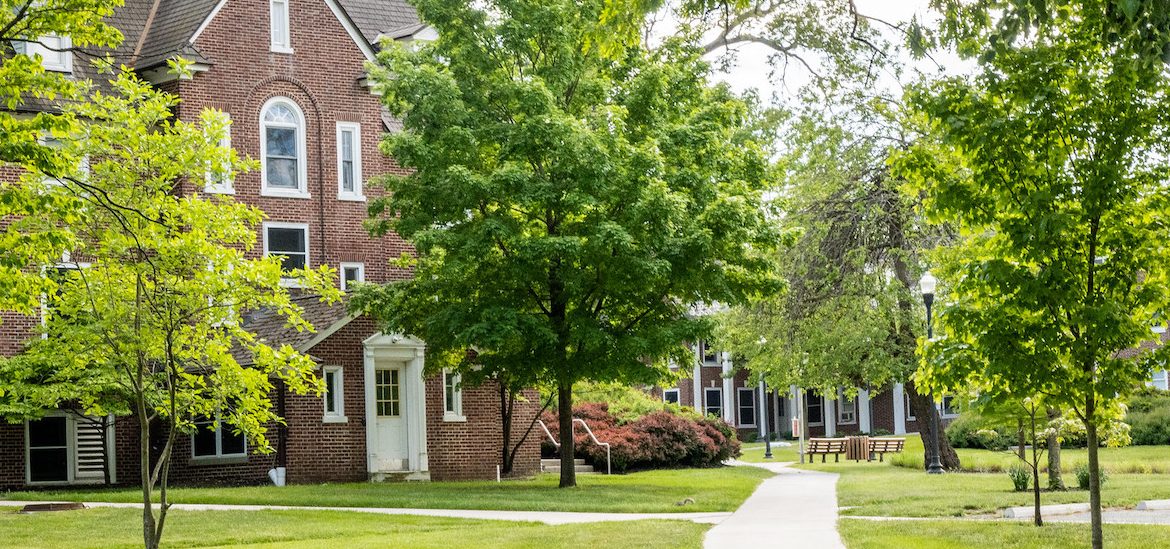
Part of a series with Rowan University’s Wellness Center, this collaboration aims to educate students about personal well-being options. For further updates, follow @rowanuwellness on social. Written by Wellness Center intern Kathleen Ramos, nutrition major As college students, we all have our own personal problems. It could be about that one professor that you find to […]
Inside Geo Information Systems with Jackie & Danielle

Geographical Information Systems (GIS) majors and graduating seniors, Danielle Miller and Jackie Ganter, give insight into what the GIS major entails and its impact. What is GIS? According to Danielle, “geographic information science, it’s the analysis of data sets, the creation of maps, and other imagery.” She went on to give her point of view […]
Normalizing Staying In As a College Student

Embracing the Art of Homebound Bliss at Rowan University Part of a series with Rowan University’s Wellness Center, this collaboration aims to educate students about personal well-being options. For further updates, follow @rowanuwellness on social. Written by Wellness Center Jocelyn Reuben, athletic training major Rhythmic Japanese plays in the background, the lights are dim, my scarf […]
Practical Strategies for Effective Time Management in College

Part of a series with Rowan University’s Wellness Center, this collaboration aims to educate students about personal well-being options. For further updates, follow @rowanuwellness on social. Written by Wellness Center intern Jean Corcione, a graduate student in our school psychology program Why Time Management is Crucial In College The idea of time management is something that […]
Living On Campus Just Minutes From Home: A Deptford Student’s Rowan Experience

Rowan Blog contributor and senior writing arts major Asiya Robinson, from Deptford, NJ (Gloucester County), shares a first-person perspective on going away to college close to home. Asiya’s hometown is approximately 20 minutes from Rowan. As a student, Asiya lives on campus, is a member of student clubs, and balances academics with both an on-campus […]
Climate Anxiety: What It Is, and Why It Matters

Understanding Eco-Anxiety: Impact on Mental Health & Coping Strategies Part of a series with Rowan University’s Wellness Center, this collaboration aims to educate students about personal well-being options. For further updates, follow @rowanuwellness on social. Written by Wellness Center intern Kayden Heinz, Writing Arts major Climate change has begun to affect people within our communities in […]
Unlock Career Success with Rowan’s RIPPAC

RIPPAC’s Growth Under Dr. Dworkin Events and Opportunities For Students The Importance of Internships and Getting Involved
Figuring it All Out, At My Own Pace
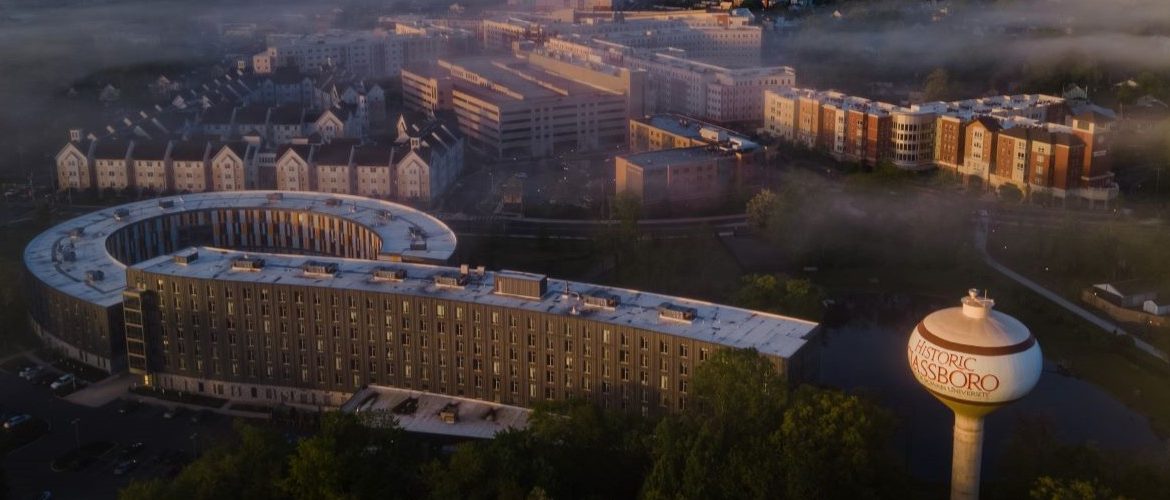
From a lackluster start during Covid, to dropping out, to discovering herself in a new major
Bio Sciences Major on Academics and Campus Life

Nathanael Alicea is a senior commuting transfer student (from Rowan College of South Jersey) here at Rowan University originally from Lindenwold, New Jersey (Camden County) pursuing a BS in biological sciences; with minors in Pre-Health and Chemistry. When asked what inspired him to choose his major Nathanael shared, “I would like to get to medical […]
From Florida to NJ: Student Athlete Shares Tips for Adjusting to College
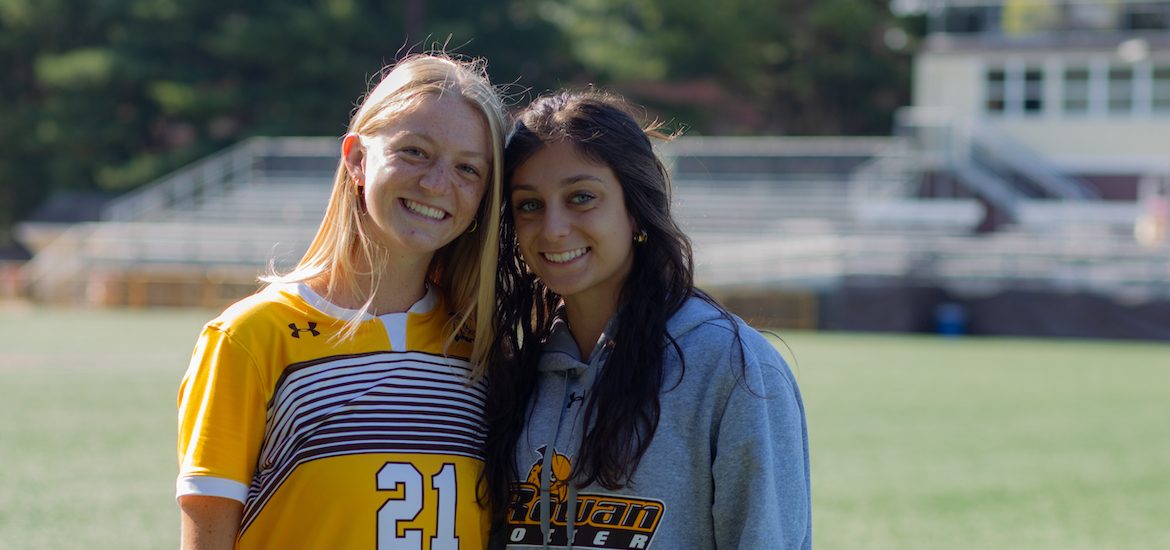
Emily Casale, a senior advertising major from Tampa, Florida shares some tips to help fellow out-of-state student athletes prepare for college. 1. Prepare for emotional and physical discomfort: 2. Prepare for new weather: 3. Prepare for balancing school and sport: 4. Prepare for out of state cost: 5. Prepare for opportunities: Written by: Emily Casale, senior […]
Why Civil Engineers Build Concrete Canoes & How it Benefits Them

Civil Engineering Majors Learn, Network & Race in ASCE Competition In the annual concrete canoe competition, Rowan University Civil Engineering students and the American Society of Civil Engineers, alongside engineering students from other schools in the area, compete. Each engineering team must determine what kind and mixture of lighter materials they should combine with the […]
National Book Month: Writing & Journalism

The month of October is known as a time centered around witches, pumpkins, and candy of course. However, as werewolves howl at the moon and that first October moon rises, National Book Month also begins! With only 31 days to celebrate Rowan students and faculty weigh on their favorite current and past reads on their […]
Alumni Spotlight on Radio/TV/Film Grad

Although this alumnus’s time at Rowan has come to an end, the effects of what he learned during his time at university follow like a trail, literally! Adam Clark of Bridgeton, NJ (Cumberland County) graduated in 2020 with a degree in Radio, Television, and Film (RTF), which he used to launch his career in the […]
Political Science Grow Research & Internships

Like most political science majors, Professor Lawrence Markowitz was originally set on entering law school after he had completed his undergraduate degree. However, after a brief internship in law that exposed him to what big law was like, some time off and a tour of Western Europe exposed him to the alluring complexities of international relations. He has since then become an expert on and published work on a variety of topics from political violence to state building with a focus on post-Soviet Eurasia and is the current chair of the political science department at Rowan University.
Transitioning from one field of study to another presented new opportunities to learn not only in the classroom but by working as well, “I interned for human rights on international affairs, then decided that I wanted to go into the field, but knew I needed a little bit more of a regional focus and a little bit more language skills.” The 1990s changed the landscape of international politics as the Soviet Union fell, providing Professor Markowitz with an opportunity that most people for close to 70 years only could dream about. As he waited to see which university would be his home for his master’s degree, he says, “While my applications were being reviewed, the year before I started my master’s, I went overseas to Moscow and did a study abroad language study for about five months in Moscow.” Even after starting his master’s degree in the fall of 1995, trips to Armenia, Ukraine, Uzbekistan, and Russia again all helped add to his depth of knowledge–something that can be seen and heard when sitting in his class.

What Professor Markowitz does for students extends outside the classroom setting, helping to guide students through their academic career. The vision he has for his department has been carefully put together to maximize the potential of students, “In political science, the faculty spends a good amount of time talking about and thinking about putting together a curriculum that builds multiple skills and helps broaden students in a variety of ways. Obviously on the most superficial level, we want you to cover the basic topics, themes, and theories and to know the material in political science. That’s the obvious. Underlying that, we’re developing a lot of the skills and less tangible abilities that will serve you over the long term.” The benefits of the skills you learn exceed being able to think more analytically or write better, “For example, how to impose and support an argument through compelling logic and evidence. If you go into law, that is obviously relevant, but in any field you’re going to be able to do that. You want to ask for a raise? That’s a good tool to have–the ability to craft an argument and to think through how to support it.”
Even when diving into the specifics of what you learn, Professor Markowitz ensures that students leave class with a better understanding of the world around them. The experiences he’s had in his own studies, research, and travels are all passed onto the students to provide a well-rounded approach to the topics covered in class. Helping students craft well thought out opinions on the world comes from taking a look at the world around them and analyzing the pros and cons in the differences, “If you just look at your experience in the U.S. and you look at the U.S. and try to interpret the U.S. American politics and the world around you and the economy, without having that broader perspective, you only have a limited view. In comparative politics and in the Russian politics class I teach we talk about themes, such as in the comparative politics class I teach, one day we do welfare states, we look at social programs, we look at Germany’s pensions and version of social security and its health care.” As much as Professor Markowitz seeks to help develop his students ability to learn and think critically outside the classroom, opportunities outside the classroom are equally as important.

While many students think primarily of internships, there are other opportunities that are available to students as well. Research opportunities are also available to students, an opportunity that helps a student branch out, “Students in their undergrad years, if they can work with a professor on a research paper project or conduct research for their classes, that is a big opportunity and advantage. In other words, they’re working on a paper and have a wide range of themes, but develop over time where your interests are.” Traditional internships are always available to students. The benefits to those are clear, “But also: not just research, but doing work within organizations or on campaigns, getting involved in various ways in politics; there’s a lot of opportunities for that.” There was also an emphasis on how lucky students are to have three major cities (New York, Washington DC, and Philadelphia) all within relative proximity to campus for tangible hands-on experience. Opportunities are boundless to those who look for them, with the staff helping students find positions for them to not only grow in, but find success as well. With both the Rowan Institute for Public Policy and Citizenship (RIPPAC) offering internship opportunities and the College of Humanities & Social Sciences offering a wide variety of internships, the possibilities available are varied. Rowan’s study abroad program also adds a layer of depth to the chances that students can create for themselves by immersing themselves in the cultures they’ve spent time studying in the classroom.
As much as Professor Markowtiz sees opportunities for students’ growth within their own fields of study, he also believes that students should expand their horizons by taking classes outside of what their area of focus is. Undergraduate studies provide students with the opportunities to explore a variety of interests, “First of all, even before selecting, but also after selecting a major, they should take a wide range of classes and explore. We’re one of the few countries on the planet, historically one of the few countries where you have a liberal arts education and you can take a range of classes and just take something in art or biology just because you want to learn about biology.” But when picking classes, students should not just choose randomly, but pick based on how it could relate to future careers, “If they go into law, then political science is a good major, but then the question is, ‘What kind of law might they be interested in?’ They don’t have to decide for sure, but if they are randomly thinking they might want to go into corporate law, then doing a minor or CUGS (Certificates in Undergraduate Studies) in something in finance or business makes sense. If they want to go into family law, then maybe doing a minor in psychology makes sense.” Finding a balance to broadening your horizons and narrowing down what a student is key to academic success.

Rowan’s political science department gives students the tools they need to succeed through lessons taught in the classroom, to the doors that lead to the professional world. When asked about what makes this university produce graduates who are so competitive, Professor Markowitz was quick to give credit to his colleagues, “We have a lot of faculty, especially in our College of Humanities & Social Sciences, who research within these fields. Most of them are at the high levels in their particular sub-field; they’re specialized. They are experts and they’re among the top experts in the broader fields that they’re in.” The staff aims not just to research for their own benefit, but to also help students stay on the cutting edge of information, to help them stay competitive in their fields of study. Professor Markowitz is not wrong when he says, “They’re not someone who is never interacting with undergrads and they don’t know how to talk about their research topic in everyday terms. We have that great mix, we have a dozen people or so in every discipline that have that kind of specialization and expertise. For the price tag, it’s a pretty good deal.”
Like what you see?
Story by:
Thomas Ubelhoer, sophomore political science and international studies double major
Marching Band Rebirth: Exclusive Documentary Reveals Triumph Over Challenges [VIDEO]

Pride of the Profs, Rowan University’s first marching band since the 1970s, shares all about their inception
From Soccer to Disney: Inspiring Journey

In this alumni success story, we learn more of the career path for 2013 education alumna Miranda Donnian. With our catching up with Miranda, a former record-breaking women’s soccer player for the University, we learn more of what came after her time here at the University, where her career has taken her, and her personal […]
A Biology Major’s Daily Experience

Originally from Trenton, NJ (Mercer County) first-generation senior biological sciences major Yesenia Flores heads into her final semesters at Rowan, and there’s so much more to come for her. About her major Yesenia shared, “I have always been very curious about the dynamics and mechanisms by which science is able to revolutionize the world and […]
Hispanic Heritage Month: A Story of Compassion for Those in Need

An adult learner graduating next year with a degree in communication studies, Jeanette Alvarez talks about her upbringing and the ways in which she has learned from it, to give back to her community. Jeanette Alvarez’s story is one of kindness, caring, and generosity, all stemming from her memories of the place she calls home: […]
My Favorite Class: Concert Choir, Perfect for Non-Music Majors Too
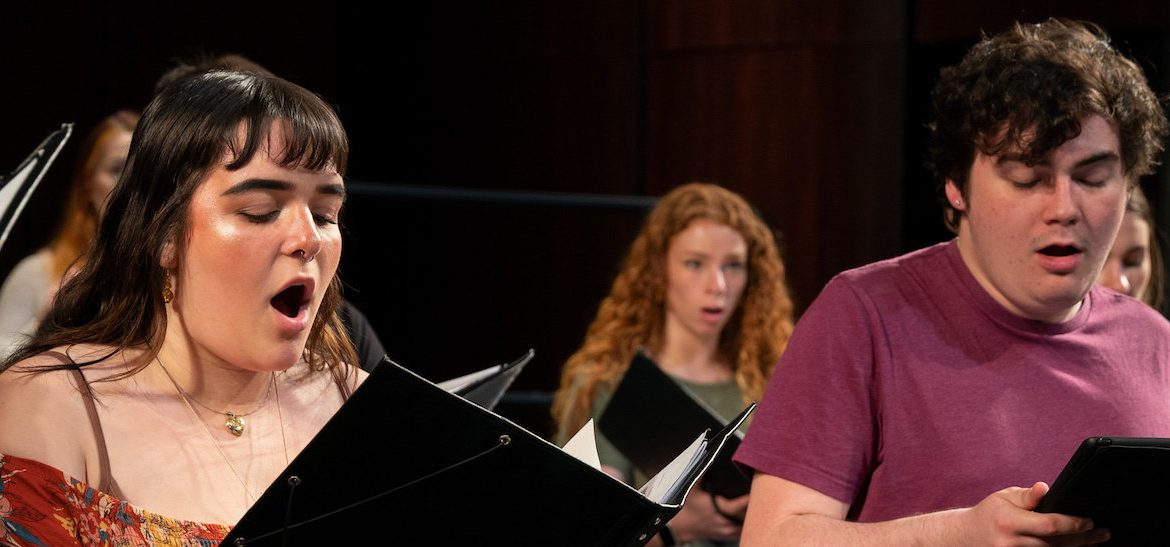
In this first-person perspective, sophomore music major and advertising major Alaina Leinze, from Woolwich Township, NJ (Gloucester County) shares her passion and joy as a student in Concert Choir. Feel free to follow Concert Choir on Instagram at rowanchoirs.
Q&A With a Senior Public Health and Wellness Major & Rowan Choice Student

Public Health & Wellness Major Discusses Her Passion for Public Health & Wellness, her internship and professional goals Senior Theresa Bennett, from Trenton, NJ (Mercer County) joined Rowan through the Rowan Choice program, a partnership with community college RCSJ that allows students to live on Rowan University’s campus while taking 24-30 community college credits, which […]
Top Tips That Students From India Need to Know When Coming to Rowan University

One Indian graduate student shares his advice on studying abroad in the USA
Men’s Hockey Captain on Leadership Journey
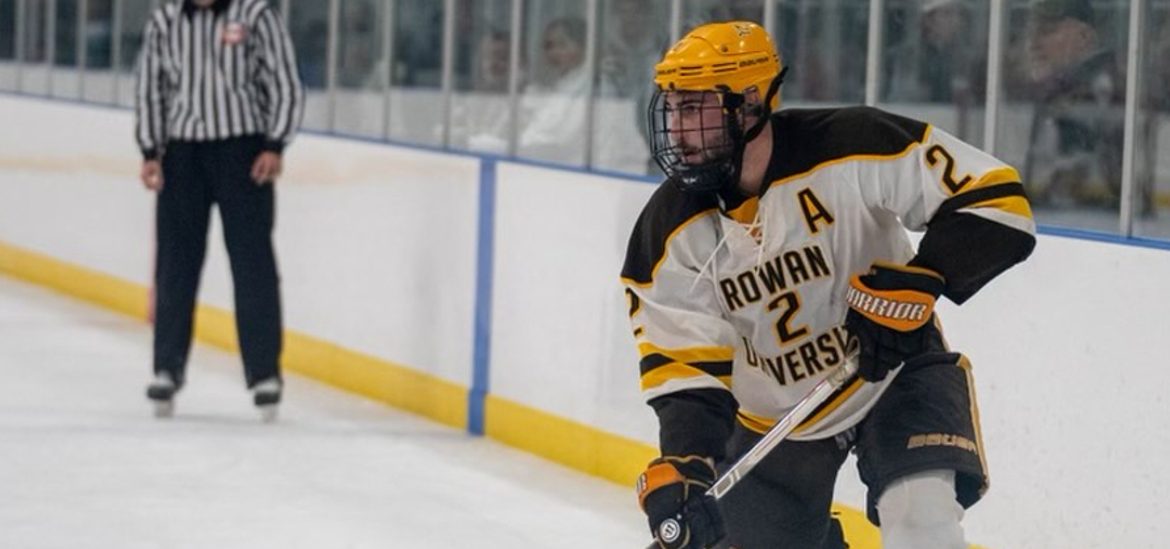
Not many have the privilege of playing collegiate sports; fewer have the chance to earn the title of captain. A recent graduate of Rowan’s finance program, Jared Cohen of Wayne, NJ (Passaic County) wore the “C” after holding down the blue line for Rowan’s Men’s Hockey team for three seasons (2019-2020, 2021-2022, 2022-2023). Wearing a letter in two of the three seasons he played, Jared is a student of the game on the ice and in the locker room.

The transition from being captain on a youth team to being a rookie on the next can be challenging. Yet Jared attributes a smooth transition to the team of veteran players around him, “I didn’t really know what to expect coming in but I was fortunate enough to meet some really cool guys my first year, some older guys who really took me under their wing.” His first-year season was about finding his role, allowing himself to take in the personalities of his new teammates before finding the confidence to be vocal with the veteran players on the team. Part of being a great leader was about being a great follower: showing up and doing your job, a concept that he executed on which lead to him becoming an assistant captian his junior year.
Going into his senior year, the obvious goal was to not just make the playoffs or make a run, but to bring home a championship. On an individual level, Jared strove to become the de facto leader on the team. Going into his senior year he was one of three players who was still wearing a letter on his jersey. Wearing the “C” was a responsibility he carried at every level. Wearing it at Rowan was the last step.
Captains come in a variety of forms, some are vocal while some lead by example, but when asked what his teammates would say if asked why he should be captain he had this to say, “I think mainly they’d say I’m smart. I’m not here to be everybody’s best friend as nice as that would be; I’m here to make sure everyone does their job for the team. That’s really what it’s about. I don’t think being the captain should be anyone’s best friend, I think they should have your best interests at heart instead. Sometimes tough love is called for, and other times it’s just a sit-down conversation. But I was always transparent with everyone.”

Although he’s been a captain at every level, he acknowledges that he still had a lot to learn before wearing the C. When asked about what lessons he picked up on under different captains, he had this to say, “It’s definitely just keeping the team together. I mean it’s hard to get through to everyone. You have a bunch of different types of guys on the team, strong personalities, weak personalities, but it’s my job to blend those together to make it as successful for the team as possible. It’s almost like a chef making a recipe, sometimes you’ve got to do it by feel, so that’s what being a captain requires. Especially on a college team where we’re not going to play pro after this, but everyone still wants to win and have fun doing it.”
Earning the captaincy was a season-long endeavor, but one that was worth it. Throughout the season Jared positioned himself to be the guy that both his teammates and coaches go to. He says, “I went into the season as the only returning player with a letter so that was really cool. I told my coaches in the beginning, during training camp, ‘I want the ‘C’, I want to be the guy on this team.’” After handling extreme lows and highs during the season, carrying both extremes with grace and a leader’s stoicism, the coaching staff agreed that it was time to give him the job he earned. Getting the ‘C’ was a special moment, “It was me and two or three other guys with ‘A’s on our jerseys, no one had a “C”. But I kind of knew I was the guy and I acted like it and I think the team reciprocated that. Toward the end of the season, before our playoff run, at a random coaches meeting before practice he gave me the ‘C’. He took my jersey and put it on. It was pretty cool.” Navigating the good and bad of a long season exemplified what being a leader of a team was.

When reflecting on the better moments of his collegiate career, several moments stand out. However the memory that sticks out the most is from his freshman year, “All three years I played we won probably 70-75% of our games so I’ve definitely been on three good teams, three years of playing– we lost the COVID year. It was never really about the regular season, we always won a lot more games than we lost but come regionals times the closest we got was my freshman year. I was playing so hurt so I was just a shell of myself, we were on goal away from going to nationals. The way it works is you have to win three games in a row at regionals. We won two my freshman year, went to the third game, we gave it all we could and just fell short a little bit.” The taste of glory and being just shy of the national tournament put a fire in his belly to be better going forward.
The somber moments of sports drive individuals to elevate their game, when reflecting on the lower moments of his career, games during his senior year stood out, “We had a couple tough games against Penn State and a few others, but we knew we had a good team, we knew our record would be good in the end. So we righted the ship there, we talked about it, we talked about whatever we had to do. Toward the end of the season, when things started to go south, in hindsight it might’ve been past salvageable at that point, it might’ve been that’s what it was. We had two really bad losses, one of them being on senior night. We blew a 2-1 lead, but ended up losing 3-2 in the final minute.” However, instead of sulking, he immediately followed up by watching film to see what went wrong to put a better effort, more effective team on the ice for the next game. His philosophy embodies learning from what you did well during your best games as well as your worst game.

Many lessons have been learned through watching other leaders, thousands of hours of time on the ice both in game and practicing, but in the classroom as well. Being a finance major helped in a variety of ways. Some of the tools that he refined through projects in class have translated to an on ice setting, “I love to be extroverted and meet new people. I think being a leader has definitely done that. Communicating with so many guys over the years, I learned about their different styles, their likes, their dislikes. Being a finance major, it’s kind of funny, I learned to communicate with a lot of people and how to get stuff done for a team. I think that’s the most important thing I’ve learned– communication.” Embodying the spitting of a leader means drawing from a variety of lessons to apply in unconventional scenarios, something that Jared does very well.
After bleeding brown and gold for his team, after four years his collegiate and education career has come to close. Through his four years in class, 61 games and 41 points, and now a finance degree to his name, Jared Cohen has walked the stage into the professional world.
Like what you see?
Story by Thomas Ubelhoer, international studies and political science major
Water and Oil, A Writing Arts Major’s Short Story

In honor of National Book Month we feature this short story, an original work by an aspiring student author at Rowan University
Alumni Success: Special Education Teacher Creates Special Needs Sports Organization [VIDEO]

A glimpse into a former special education teacher’s career pivot After graduating and launching his special education career in 2011 and teaching for 10 years, alumnus Dan Minko noticed a gap in available recreation and athletic opportunities for people who are a part of the special needs community. To fill the gap and serve the […]
Grown & Flown: Four Parents Share Stance on Checking Their Students’ College Grades

The Grown & Flown series features wisdom and insight from parents of current Rowan Profs, to help parents of new Rowan Profs. The transition of parenting a child at home to parenting a young adult at college is an important one, and Rowan parents are here to help our community. Read additional stories here. What […]
My Home Away from Home, The United Latino Association
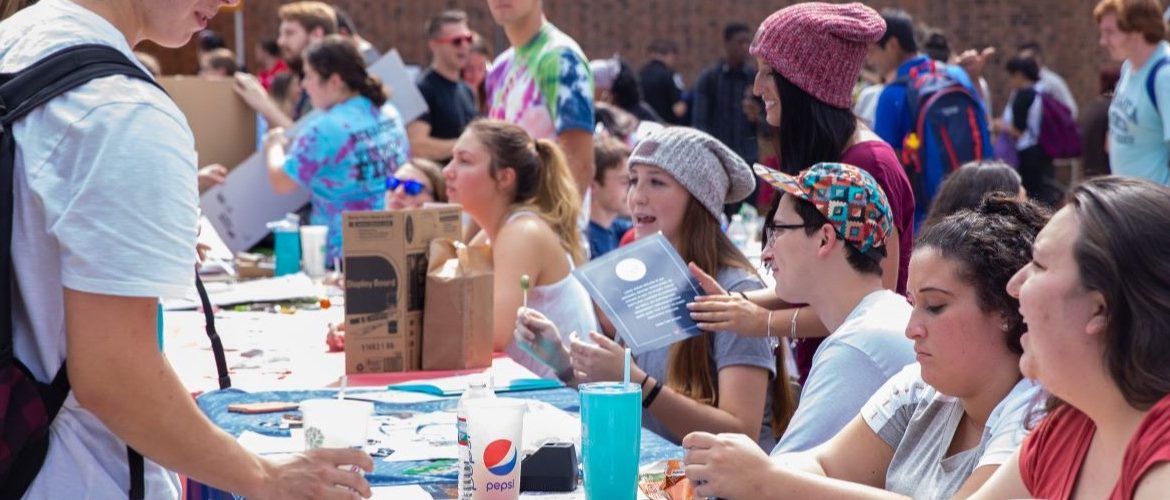
Julianna Wells, reflecting on her sophomore year as a political science major from Oak Ridge, NJ (Passaic/Morris Counties), shares this first-person perspective on how joining the The United Latino Association at Rowan University helped her rewrite her experience and find a home away from home. In addition to her major, Julianna will earn certificates of […]
Neurodiversity Student Government Representative Advocates for Autism Awareness and Education

One Rowan University Student Breaks Down Barriers All Year Round, Not Just During Awareness Months In 1997, sociologist Judy Singer introduced a new terminology to the world of science/medical world called neurodiversity, which is a concept that helps those to understand that there are varied ways that each person’s brain processes information, functions, and presents […]
Transitioning From Living on a Farm to a City

One Rowan University Student Shares Her Journey Through Culture Shock Hannah Goolden, a senior business management major from Hammonton, NJ (Atlantic County) shares this first-person perspective on how her life changed when moving from a farm to a city.
Change is Good (Even When It’s Your Major)

One Student Shares How She Found Her True Path by Changing Her Major at Rowan University
Community College to a 4 Year University

Kaleigh Bonitatibus, a senior communication studies major from Washington Township (Gloucester County) shares this first-person perspective on their experience transitioning from Rowan College of South Jersey to Rowan University.
Graduating in 2020 at the peak of the pandemic not only ruined the best part of my senior year but also affected my college decision. I dreamed of going away for all four years to live the “college experience.” However, due to the persistent stay-at-home mandate, I knew it was pointless to leave the state for school if my first year was bound to be all on Zoom anyway. I put away my fantasy of going to a university and decide to begin my higher education at the community college RCSJ. It was more affordable and realistic during the pandemic. However, I always knew that I wanted to transfer to a four-year university to pursue my bachelor’s degree. Rowan University was affordable, close to home, and the easiest to transfer credits to because RCSJ is affiliated with Rowan.

Transitioning from a community college to a university can be challenging. I was nervous about entering a larger campus, navigating my way to different classes, and meeting new people. Nonetheless, my time at Rowan University has been very successful.
One of the things that helped me with my transition was attending Rowan’s Transfer Student Orientation. It provided me with all the information I needed to know about the university. This especially eased my anxiety about getting around campus and the location of all the different academic buildings.
Another thing that helped me adjust to university was my proximity to campus. Rowan is only a 15 minute drive from my home, so I commute to campus. However, being so close to home means a lot of my high school friends attend Rowan. My friend Spencer, who I went to all of grade school and high school with, also attends Rowan and lives in an off-campus home. Spencer has been a big part of me meeting new people at school because he invited me to several social events where I was able to meet so many more people and even gain some valuable friendships. Joining clubs has also eased my adjustment to Rowan. Currently, I am on the Commission of Community Standards. Being a part of this commission allows me to solve issues that clubs are having and help them grow.

Academically, the transition was challenging but manageable. The courses at Rowan are more rigorous than those at RCSJ, but as I have always prioritized my education I found that I was able to keep up with the workload. Most of my courses at RCSJ were online, and adjusting to in-person classes was slightly taxing since I had to further manage and adjust my work schedule so it could fit in with classes.
Overall, my experience transitioning from RCSJ to Rowan University a was positive one. If you’re considering transferring to a four-year university, my advice would be to attend transfer orientation, get involved on campus, and utilize the resources available to you. It can be anxiety-filling at first, but eventually, it will be worth it and you’ll enjoy your experience at Rowan.
Like what you see?
Written by Kaleigh Bonitatibus, a communication studies major
Story edited by Valentina Giannattasio, a rising junior dance and marketing double major
Surviving Rowan as an Extroverted Introvert

Laney McNelia, a junior advertising major from Mickleton, NJ (Gloucester County) shares this first-person perspective on their experience being an extroverted-introvert, and how college helped them defeat their fears.
Finding My Home Away from Home at Rowan University Through the Student Organization Fair

Nicholas Wright, a junior health science communication and communication studies double major, from Gloucester County, NJ shares this first-person perspective on how he found a home away from home on Rowan campus.
As a freshman at Rowan University, I was nervous about the transition from high school to college. I had heard stories from friends and family members about how difficult it can be to adjust to a new environment, but I was determined to make the most of my college experience.
One of my biggest concerns was finding my place on campus. I wanted to get involved in activities and clubs, but I didn’t know where to start. Luckily, during my first week at Rowan, I stumbled upon the student activities fair.
The student activities fair is an event where all the clubs and organizations on campus set up tables to showcase their group and recruit new members. I was amazed at the variety of groups available, from academic clubs to sports teams to service organizations. As I walked around the fair, I was struck by the passion and enthusiasm of the students involved in each group.

After talking to a few club representatives, I decided to join the International Student Association. As an international student myself, I was excited to meet other students who shared my background and interests. Joining the club was one of the best decisions I made during my freshman year. I was able to make friends, learn about different cultures, and participate in fun events and activities throughout the year.
In addition to the International Student Association, I also joined the Rowan Ambassadors program. The Rowan Ambassadors serve as official hosts and representatives of the university at events such as open houses and campus tours. Through the program, I was able to develop my leadership skills, meet other students who were passionate about representing Rowan, and gain valuable experience in event planning and public speaking.
Aside from the clubs and activities, I also found a sense of community through my professors and academic advisors. Whenever I needed guidance or support, they were always there to offer their expertise and advice. They helped me navigate the transition to college and provided me with the resources and support I needed to succeed in my classes.
Looking back on my freshman year, I am grateful for the opportunities and experiences that Rowan University has provided me with. From joining clubs to building relationships with professors, I have found a home away from home on this campus. If you’re a future college student or parent, I encourage you to explore all that Rowan has to offer. It may seem daunting at first, but with an open mind and a willingness to try new things, you can find your place on this campus too.
Read this story for another perspective of the student organization fair from upperclassmen involved on campus.
Like what you see?
Written by: Nicholas Wright, junior health science communication and communication studies double major
Story edited by: Valentina Giannattasio, junior dance and marketing double major
International Student Shares MIS Major Journey

Osvaldo Rosi, an international student from the Dominican Republic, gives his insight on Rowan’s international program and his experience as a management information systems major.
My First Day At Rowan University, Move In

Lucy Marks, a sophomore public relations major from Voorhees, NJ (Camden County) shares this first-person perspective on their move-in day as a first-year student last year. Welcome back, Profs, we hope you’re kicking off the year great!
Before I got myself settled at Rowan, I had been nothing but excited for months. From the moment I got my acceptance letter to the second I made the commitment deposit, I only had enthusiasm for the future. It was not until the night before my move in day where I found myself afraid of the unknown. The realization hit that I would be closing off an amazing year and taking a step toward unfamiliar things and more responsibilities. The fear that I would be starting the path to being on my own terrified me.
The morning of, there was no worry on my mind since I was too focused on instructing my brother and dad of where I wanted each of my duffle bags. I had six heavily packed bags that included all of my clothing and necessities. Everything was organized and labeled because I did not want to add another thing on the list of things that were stressing me out. Once everything was packed, My parents and brother made our way to campus in separate cars.

Parking was simple; we were instructed to empty the car while I went ahead and received the key. Getting settled was the difficult part because everything had to be dragged up three flights of stairs in ninety degree weather and I had to decide where everything should go. At that moment I had not been feeling anything besides, hot, sweaty, and out of breath. Once everything finally made its way in the dorm room that seemed so far away and unfamiliar, my parents helped me organize. Fortunately one of my good friends was also going to Rowan so she came and helped as well. It made me feel less alone and stable. All of the decoration and organization was fun in the way where it was the time of personalization and brought some comfort. However, the feeling that had been eating at me was the suspense of when my parents would leave.

It was not until they stood in front of me as I sat on my bed looking at them inch closer to the door when everything I was holding in came to the surface. The knowledge that they were going to leave me alone in a new place felt surreal. I had never imagined I would have to face the feelings of being left behind.
Basically, it came out of nowhere and so did my tears. I felt so strange when they were gone. I did not know what to do with myself and kept asking myself what was supposed to happen. The day was excruciatingly long and ended with my floormates and I talking about the weird feeling we had while sitting in that hot lounge alone; just us. The most common description of this feeling was that it was like being dropped off at summer camp, except your parents were not coming back and there were no adults
telling you what to do. I never thought that feeling would go away. September felt like it was three months long and the rest flew by. I just finished my first year at Rowan University and this once unfamiliar place now feels like my home.
Like what you see?


